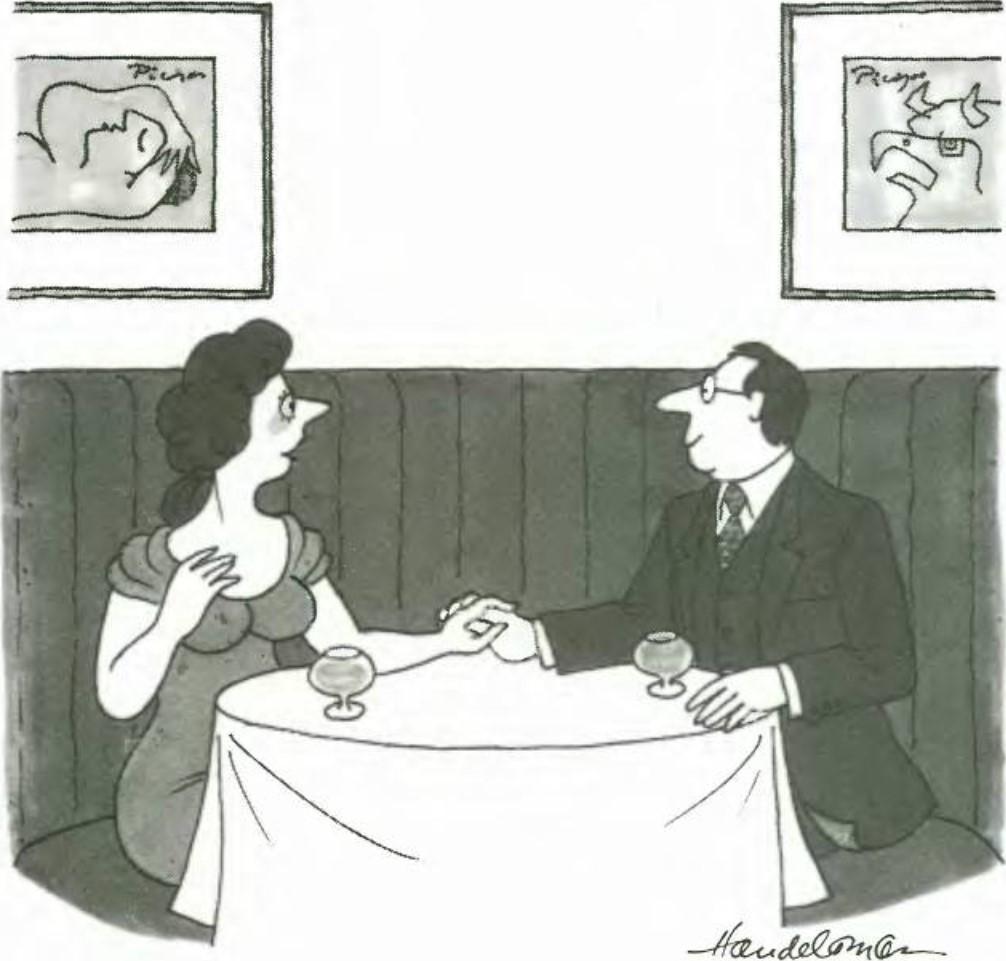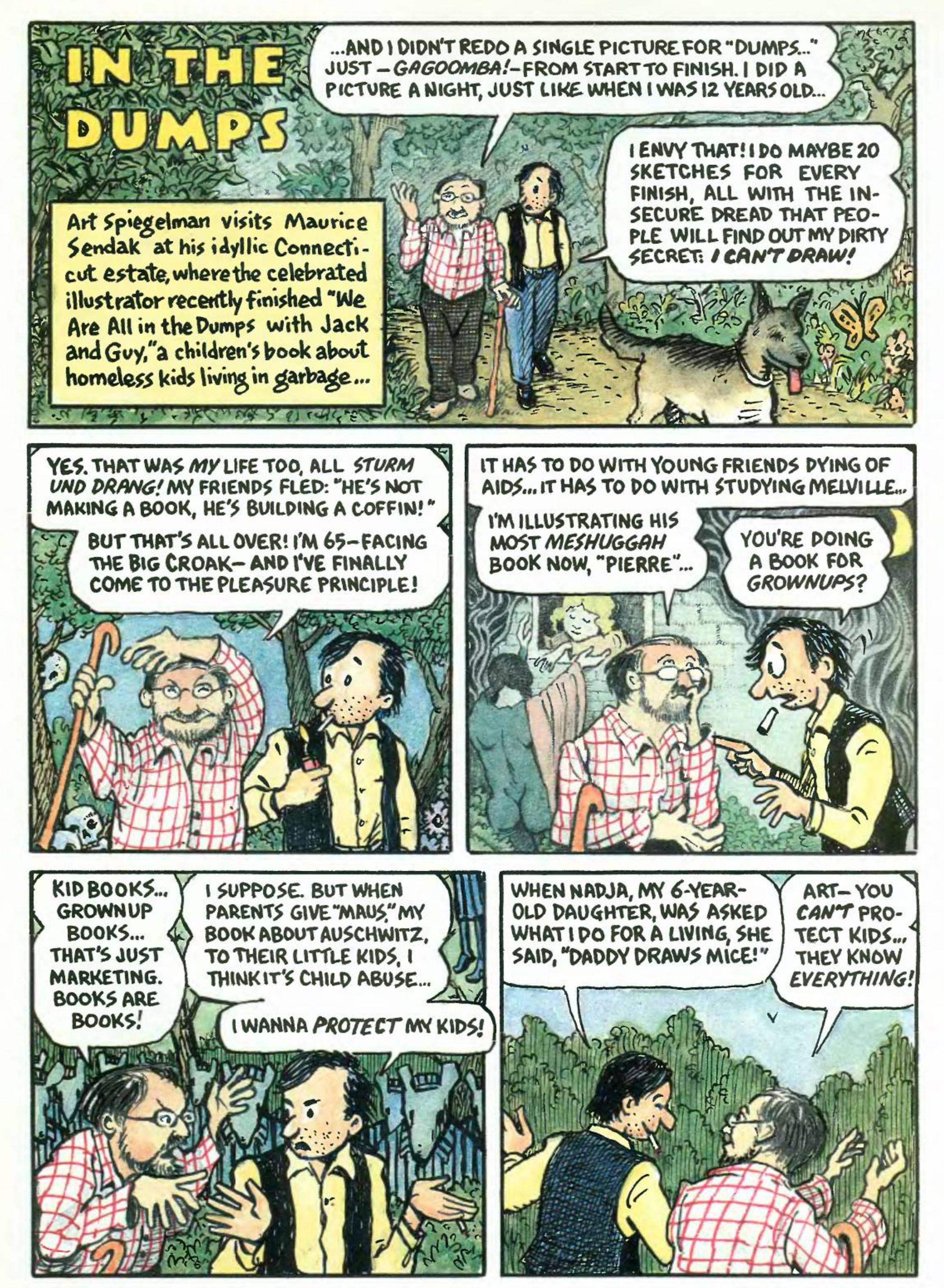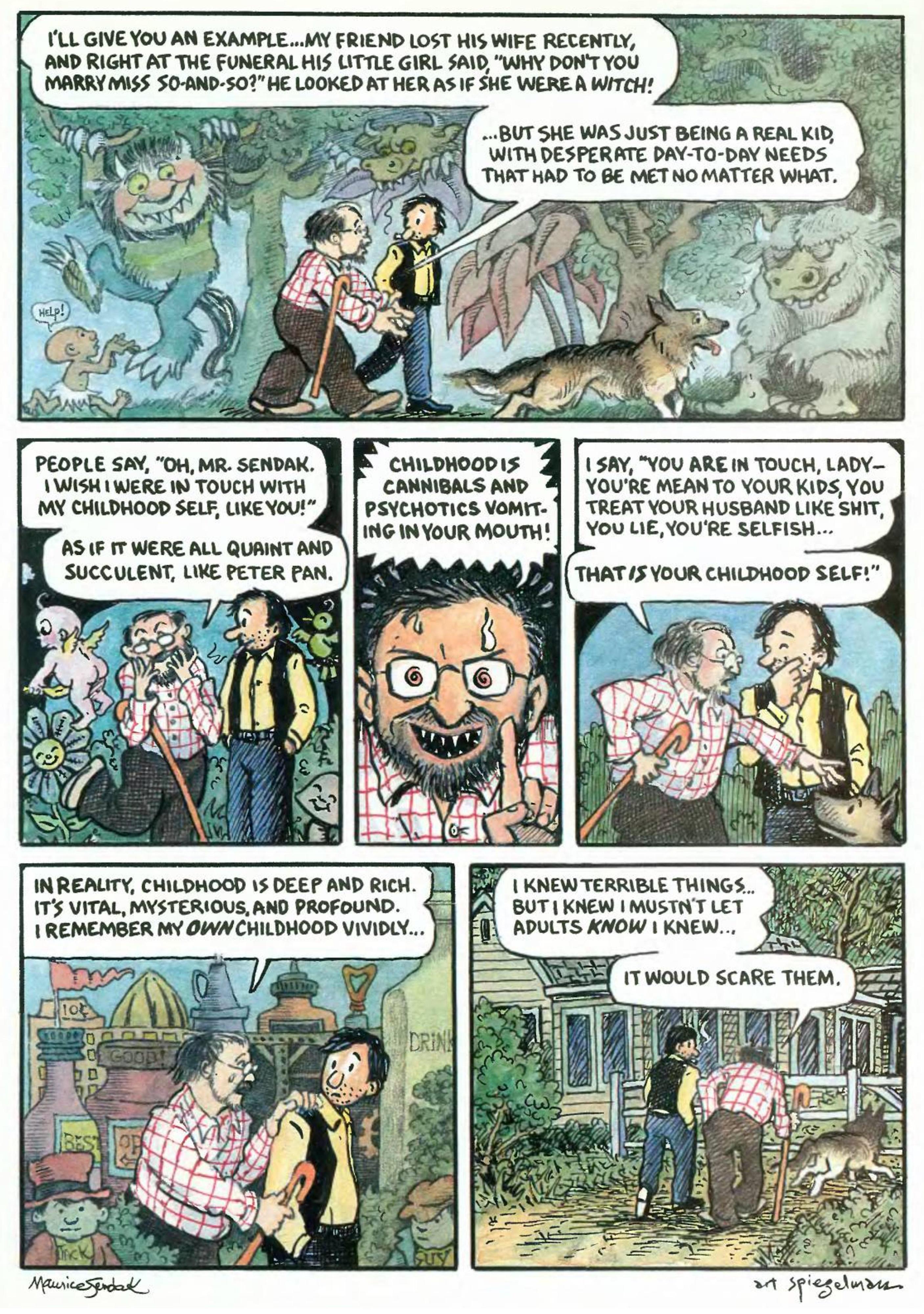Joe Kane
With Spears From All Sides
Letter from the Amazon
The Huaorani are an ancient tribe whose survival is threatened by American oil development in the Ecuadorian Amazon. They endured missionary zeal, corporate encroachment, and American environmentalist campaigns claiming to represent their interests. Then the Huaorani tried to save themselves.
In March of 1991, an odd letter surfaced at the San Francisco headquarters of the Rainforest Action Network (RAN). To this day, no one is quite sure how it got there. At first, RAN’s executive director, Randall Hayes, wasn’t sure what it said, either, because it was written in Spanish. It was addressed simply to “General Manager, DuPONT-CONOCO Company, United States of North America.” It had been typed on a manual typewriter. “The company Conoco is discussing the life of the Huaorani in meetings at which the Huaorani are not present,” the letter said, adding that on their own land the Huaorani, a small band of seminomadic huntergatherers who live deep in the Ecuadorian Amazon, “are treated as if we were guests.” The letter expressed absolute opposition to oil exploitation in the Huao homeland, and warned that the Huaorani “know about the problems of the whole world ... and we will defend our land.” It was signed by the officers of something called the Organization of the Huaorani Nation of the Ecuadorian Amazon. A cover note asked Hayes to forward the letter to Edgar S. Woolard, Jr., the chairman and C.E.O, of DuPont. Conoco was a DuPont subsidiary, with oil rights to the Huao lands, and so was ultimately under Woolard’s control. The note advised Hayes to be careful, because “the Company has many spies.”
At the time, I was working at the RAN office a few days a month helping Hayes edit his publications, and he asked if I’d translate the letter and try to find out if it was authentic. If it was, it would place the Conoco project—a project that RAN was waging a vigorous campaign to derail— in serious jeopardy. Though Conoco and its partners had already invested ninety million dollars in exploration of the Huao oil field, and predicted eventual revenues of two billion dollars, DuPont had to weigh that sum against the potential cost of being seen as trampling on the rights of, and perhaps annihilating, rain-forest natives.
But was the letter for real?
Many environmental and humanrights groups claimed to be working on behalf of the Huaorani, or their land. Letter-writing campaigns, boycotts, lawsuits, grants, and foundations were being pitched and caught by the likes of CARE, Cultural Survival, the Nature Conservancy, the Natural Resources Defense Council, Wildlife Conservation International, the Sierra Club, and RAN itself. In terms of both cost and reward, the money involved was substantial—tens of millions of dollars—and the infighting bitter. When I called around to the various offices, however, no one could convincingly vouch for—or produce evidence against—the letter, no one knew how to make contact with the Huaorani. All that could be said with certainty was that the Huaorani, whoever they might be, were trapped in the path of an American juggernaut, their fate bound up with a culture whose thirst for oil was second to none. American oil companies coveted their land, American missionaries their souls, American environmentalists their voice. But no one knew what the Huaorani wanted; no one really knew who the Huaorani were.
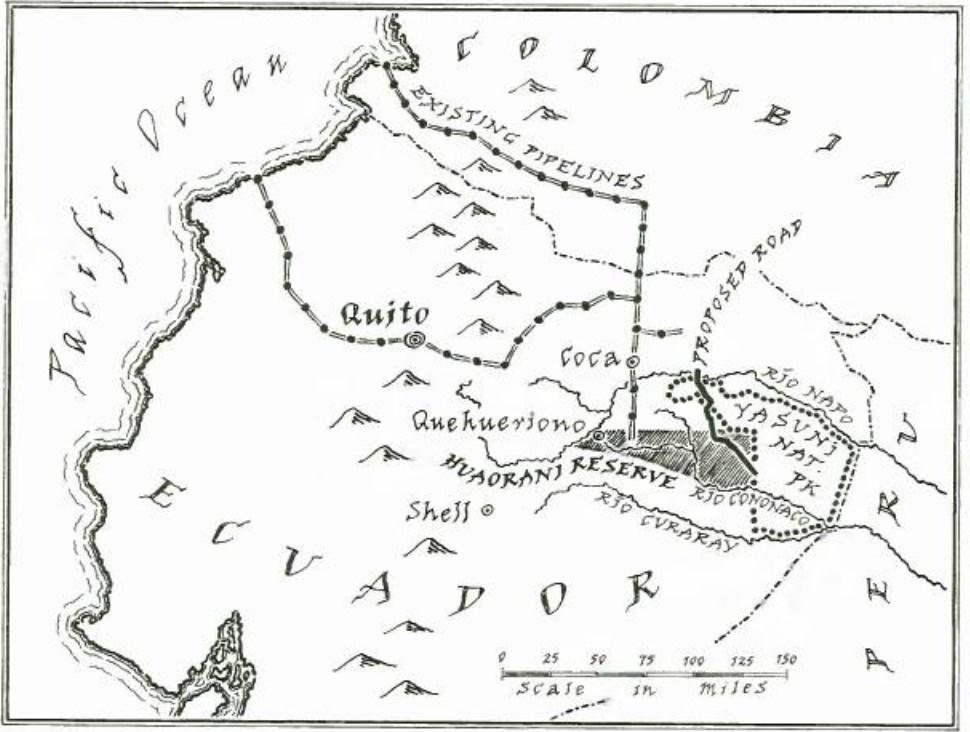
The town of Coca sits on the north bank of the broad brown Napo River, in the heart of what may well be the richest biotic zone on the planet— the Ecuadorian Amazon, known as the Oriente. But as I entered the town for the first time, bouncing on the back of a flatbed pickup, what I smelled most strongly was raw petroleum. Coca is ringed by oil wells, and every few days its dirt streets are hosed down with waste crude. Oily mud splashed across my clothes and my pack. Along the roadside, oil had spattered chickens, mules, pigs, barefoot schoolchildren, and peasants slip-sliding along on rickety bicycles. It even slopped up onto the spanking-new four-wheel-drive trucks that now and then came blasting down the road at breakneck speed.
Some of the trucks bore the insignia of the state oil company, Petroecuador, but most of them belonged to American companies—Texaco, Occidental Petroleum, Arco, Unocal, Conoco, Maxus Energy, Oryx Energy, all of which have, or had, oil concessions in the otherwise sylvan wilderness that surrounds Coca for hundreds of square miles. Indeed, in Coca, though it is small, with a permanent population of less than three thousand, there are always Americans around. I ate lunch at a restaurant called El Buho. The menu featured such jungle fare as tapir (spiced with teeth-shattering shotgun pellets), capybara, guanta, venison, caiman, and peccary, but you could also get a cheeseburger and fries. The Mission, Coca’s only hot-water hotel, was booked solid with Occidental executives in from the States, and at dawn the next day, when a squad of Ecuadorian soldiers jogged down the main street in earnest formation, what caught my attention in the sea of brown Latin skin was the blond hair and blue eyes of the man leading them; his uniform identified him as an officer in the United States Army.
If oil is the first thing you notice in Coca, the second is references to Aucas, the people indigenous to the vast and mostly uncharted stretch of the Oriente that begins across the Napo and extends over a hundred miles south and east, to the Peruvian border. Trinket shops sell Auca blowguns and spears, tour guides promote river trips to the Auca homeland to see “naked savages,” and on the walls of the Hotel Auca, in the center of town, hang black- and-white photographs of Aucas dressed in, at most, bellybands and earrings, their short, powerfully muscled torsos painted and tattooed, their earlobes perforated and hugely distended. If you happen to mention that you are heading into Auca territory, you will probably be told that the Aucas regularly kill travellers, other Indians, and their own people, and that they will not only kill you but eat your flesh. And without a doubt you will hear the story of a Capuchin missionary named Alejandro Labaca.
In the late nineteen-seventies and eighties, Labaca, then the bishop of Coca, crossed the Napo and made the first sustained contact with several Auca bands living deep in the forest. At first, the Aucas robbed him blind. (They survive mainly by hunting and by gathering forest crops, and they regarded his belongings much as they would ripe coconuts.) But Labaca kept returning, and soon he was shedding his clothes and running naked through the forest with his new friends. In 1987, an oil exploration crew investigating the Auca territory by air spotted a hut that they believed to be the home of Tagae, the notoriously fierce leader of the most reclusive of the Auca clans. Labaca, worried that the company would track Tagae down and kill him, asked permission to make friendly contact with him first. A helicopter crew dropped Labaca in the clearing. It returned a few days later to find him pinned to the ground, spread-eagled, by seventeen palm-wood spears, each of them about ten feet long, which jutted like porcupine quills from his throat, chest, arms, and thighs. His corpse was punctured in eighty-nine places.
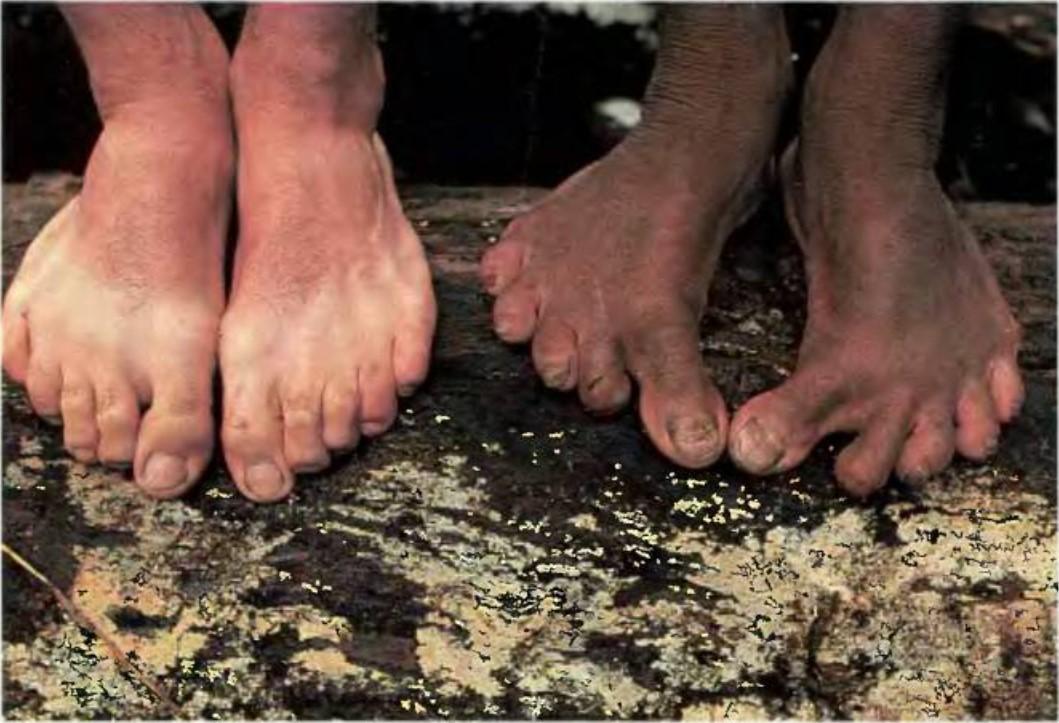
I first heard about Labaca one steamy night at the Hotel Auca, on a thatch- roofed patio where half a dozen Australian and Israeli tourists, young and longhaired, had gathered to drink beer. The man who told the story had taken a commercial boat ride near the Auca territory, but he hadn’t seen the promised savages.
“No naked Indians!” he said bitterly. “None!”
The patio was lit by a single candle, and by its dim light you couldn’t really tell that four dark-skinned young men who happened to be sitting on the grass a few yards away weren’t of Latin blood. The tourists ignored them—not that these men would ever identify themselves as Aucas. They would call themselves Uuaorani: the People. In the language of their traditional enemies, the Quichua Indians, auca means “savage,” and the Huaorani consider it a gross insult
The four Huaorani hardly resembled the hotel’s photographs. They wore spotless denim jeans, brightly shined plastic loafers, and bleached white cotton shirts. The first man I spoke with sometimes went by the name Eugenio, because he found it convenient to use a Latin name when he was visiting a foreign country, which is what he considered Ecuador to be. But if you looked closely when he smiled you could catch the candlelight glinting off his left front tooth, which had been inlaid with gold in the shape of an A. This was for Amo, his Huao name.
The man next to him, Enqueri, had no front teeth—he had hardly any upper teeth at all—and he was wearing a pair of headphones that appeared to be plugged into his right hip pocket. When I asked him what he was listening to, he replied in a tone so solemn I was sure I’d committed a horrible breach of Huao etiquette. “I am listening to my pants” he said. He let that hang for a moment, and then he and Amo collapsed with laughter, rolling on the ground and cackling wildly.
“To your pants!” Amo gasped. “What do they say?”
“They say, Wash me, you moron!’”
The other two men, whose names were Nanto and Moi, sat with their arms around each other’s shoulders. Nanto told me that to reach Coca they had travelled by foot, canoe, and truck for three days. They had been in town five days, and had not eaten since they arrived. They had come to Coca to find the Company—the Huao name for all petroleum interests. The Company was going to drill oil wells inside the Huao territory, and build new roads, and the Huaorani did not want this. Nanto was going to tell the Company to stay out. He had the authority to do so, he said, because he was president of the Huaorani federation, which was called—here he rolled his eyes up into his head, searching for the name.
“The Organization of the Huaorani Nation of the Ecuadorian Amazon,” Moi said. Like the others, Moi had thick black hair cut long in back and straight across his eyes; unlike the others, he wore a crown of toucan feathers, and he didn’t smile. Moi, Amo, and Enqueri were ONHAE’s vice-president, secretary, and treasurer, respectively. All were in their mid-twenties, though there was some disagreement on just where in his mid-twenties Enqueri was; and they had been elected by their people (there are about fifteen hundred Huaorani) to speak to the cowode—the cannibals, who included the missionaries, the Company, me, and everyone else on earth.
This reaching out was an extraordinary step for the Huaorani, who until the middle of this century were almost completely isolated from the world beyond their territory. (Their language is unrelated to any other in the Amazon, but some of the younger men now speak and are literate in Spanish.) These, however, were extraordinary times. In the heart of the Huao homeland, the Company had found oil reserves it estimated at two hundred and sixteen million barrels. It was about to begin constructing a ninety-mile access road, a hundred and fifty miles of service roads, and a pipeline, and drilling a hundred and twenty wells.
None of the projected two billion dollars in revenues would be shared with the Huaorani; under Ecuadorian law, the state retains all subsurface mineral rights. But from the Huao point of view, at least, money wasn’t the issue. The issue was survival. Oil development in the Oriente is virtually unregulated, and it has been an environmental disaster, dumping millions of gallons of untreated contaminants into the watershed every day and opening the area up to such rapid and uncontrolled colonization that by some estimates it will be completely deforested early in the new century. The consequences have been borne most heavily by the Oriente’s two hundred thousand indigenous people. To understand what looms for the Huaorani, one need look but a hundred miles north, to the Cofan. The Cofan were a small but thriving nation in 1967, when Texaco drilled its first exploration well in their homeland; today, their culture has almost completely disintegrated.
It is likely, in other words, that the Huaorani will be wiped out for the sake of enough oil to meet United States energy needs for thirteen days. However, the Ecuadorian government, which has a huge international debt, depends on oil production for nearly half its revenues, and it has outlawed any attempt by the Huaorani to impede the Company. In any case, ONHAE, from what I gathered, had no office, no phone, and no money. What, I asked, did the Huaorani propose to do?
It was Moi who answered, softly but without hesitation. “We will find the Company and talk to them,” he said. “If they don’t listen, we will attack with spears from all sides.”
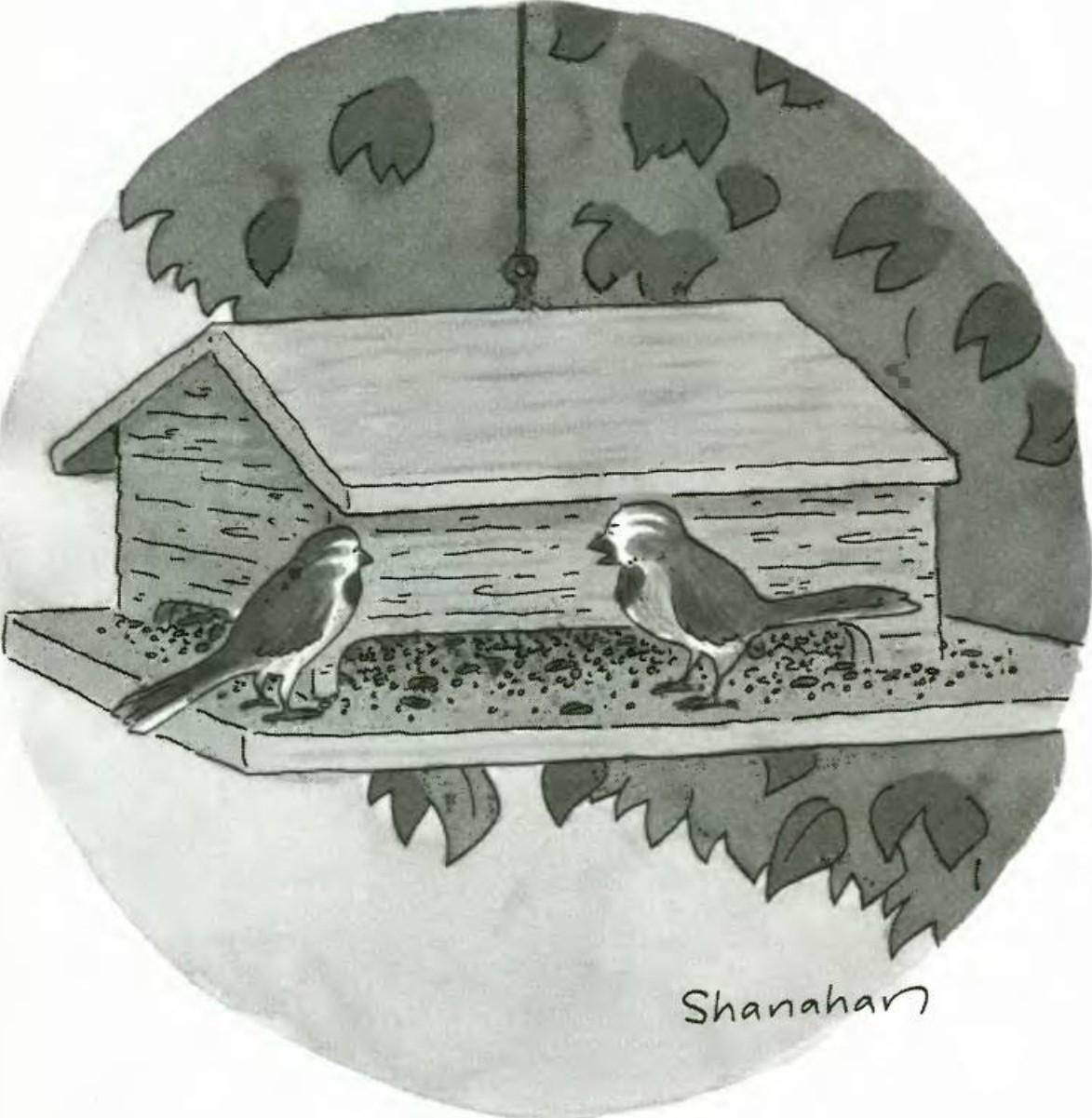
The Huaorani are not hard to spot in Coca, once you know what to look for. They hate to travel alone—it’s both dangerous and boring—so they’re usually in groups of two or three or more, often with their arms around one another. They are shy but keenly observant. Theyll stand for hours in front of the Kamikaze Disco or the Hotel Auca or a greasy spoon called Rosita’s, studying the action as intently as if they were scanning the forest canopy for monkeys. If they’re Huaorani making one of their first trips to town, you might see them on a street corner, mesmerized by the spectacle of cars and electric lights, or, if someone has given them shoes, by their own feet. A barefoot Huao from the far backcountry, a real tree climber, is particularly easy to spot: he’s the linebacker with the big toes that take off at right angles, like opposable thumbs. Sometimes you’ll see a Huao walking through town innocently carrying a blowgun the length of a bazooka, while passersby freeze in terror. Now and then, a young Huao man will come into some cash, by selling a blowgun or a spear, or a harpy eagle, or a jaguar cub, or by earning slave wages as a boatman for a tour guide or as a laborer for the Company, and he will bring an entourage of other Huaorani with him to Rosita’s and spend everything he has buying his friends fried chicken and soft drinks. This is not profligacy: the Huao ideal is to be independent and self-reliant, and every effort is made to give the appearance, at least, of being so clearly in tune with the abundance of the forest that one is without fear of need. (By the time a Huao is seven, he is expected to be able to survive on his own.) There is no higher manifestation of this ideal state than unqualified generosity, and no act more generous than to give away food.
You can always find Huaorani out toward the east end of Coca, at the Huaorani Hotel, as it’s known—a cinderblock shack with eight beds, which the Capuchin mission lets them use as a bunkhouse. The first morning I went there, a dozen Huaorani were sprawled across the beds, draped one over another, wrestling and laughing. T-shirts, a couple of pairs of pants, and a blanket were hanging on a line outside—to diy, the Huaorani told me, although it was raining so hard you couldn’t see ten feet.
“Moi, what time is it?” Enqueri yelled from beneath a pile of brown bodies.
Moi, sitting in a comer, looked at his wrist. “In Japan, it is nine o’clock,” he said. “In Europe, it is ten. In Ecuador, it is eleven. In America, it is twelve.”
“Twelve o’clock,” Enqueri said. “Time for the arwode to be hungry.”
Enqueri was the first Huao I came to know well. At five feet seven, he’s tall for a Huao. He has the meaty, forest walker’s quadriceps that give the Huaorani an almost bowlegged lope on a city street, but his shoulders are uncharacteristically narrow, and when he laughs they shake up and down furiously, nearly touching his ears. When he laughs around ccrwode, he tries to keep his mouth closed, because he has learned to be ashamed of his bad teeth, but this is like holding a cat in a sack. Inevitably, he explodes in a steady cadence that goes, quite literally, “Ha-ha- ha-ha-ha.” The other Huaorani call him Condorito, after a popular South American comic-book character—an avian, frenetically absent-minded cross between Woody Woodpecker and Elmer Fudd. “Enqueri is like Condorito because his head has too many ideas,” Amo told me. “One day, he wants to be a schoolteacher, and the next day he wants to devote his life to the People, and the next day he is working for the Company, and the next day he wants to kill the Company, and the next day he is going to be a nurse, and the next day he wants to go to the sky and be with God.”
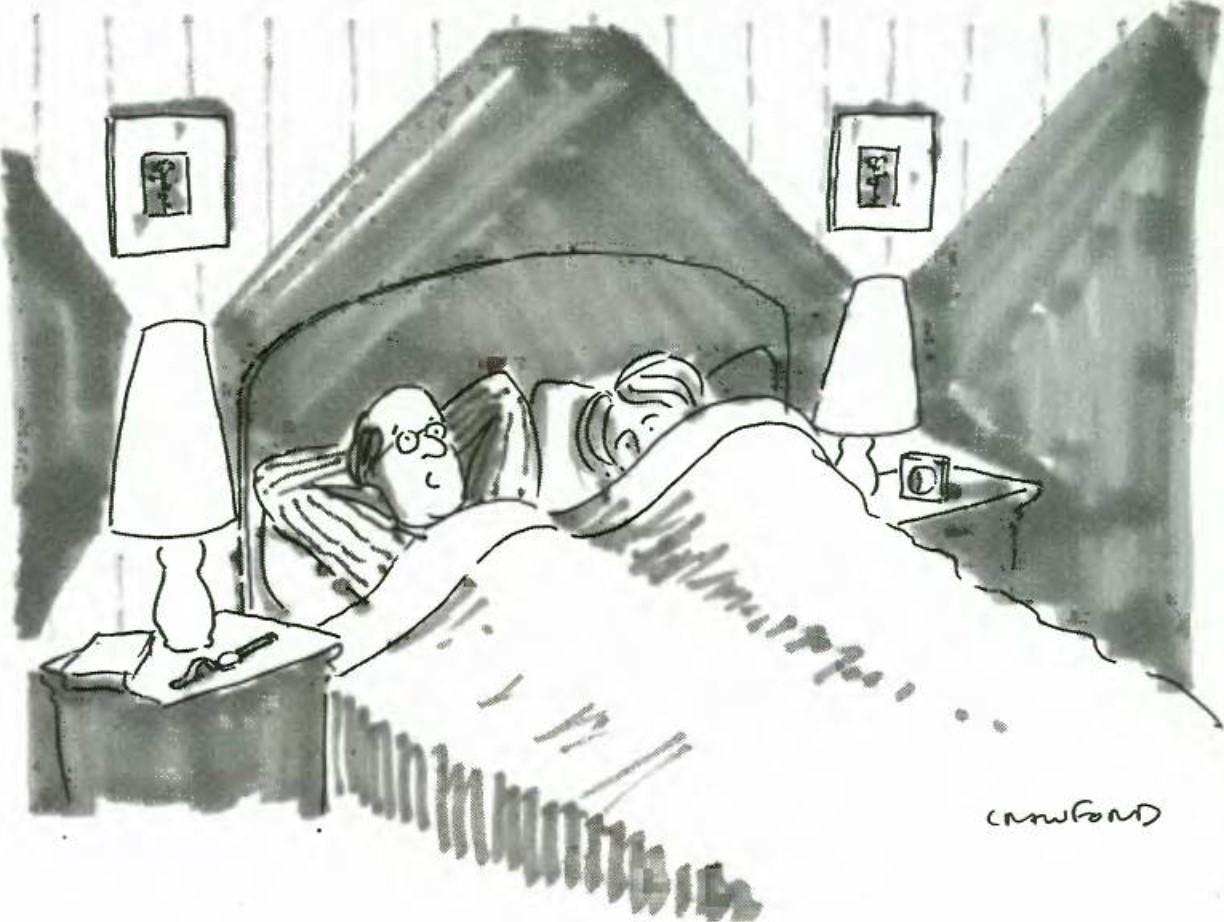
Enqueri may well be confused, but a man forced to leap from the Stone Age to the Petroleum Age is going to have a few things on his mind. Certainly any idea that Enqueri is a fool is misplaced. He is easily the most literate of the Huaorani, able to read and write both Spanish and Quichua. These skills he owes directly to a day in 1956 when his father helped kill five American evangelical missionaries who had plunged into the Huao territory bent on saving the “Aucas” from their heathen existence. The Aucas were “a hazard to explorers, an embarrassment to the Republic of Ecuador, and a challenge to missionaries of the Gospel,” one of the men, Nate Saint, wrote in his journal—a journal in which he recorded sharing dinner with the naked brown savage he called George, and which he kept right up until the moment George’s friends ran him through with a spear. Nate had an older sister, Rachel, who had raised him like a son. When she got word of the massacre, she went after the savages, and she applied herself with a holy vengeance. Within a few years, through sheer stubbornness, the intimidating magic of airplanes and bullhorns, and the seductive luxury of salt, white rice, and aluminum pots, she had managed to establish a Christian beachhead inside the Huaorani territory, a few miles from the very spot where her brother Nate had eaten his last hamburger.
Supported by the Ecuadorian government and by legions of believers back home, Rachel built a chapel and established an elementary’ school and set about sculpting a new model of Huaorani: one who spoke Spanish, saluted the flag, honored God, understood the value of a dollar (or, at least, an Ecuadorian sucre), and rejected such heathen practices as shamanism, nomadism, nudity, and “free love.” The Condorito excelled in his studies, and won the privilege of attending secondary school outside the territory. There, however, he fell under the influence of more worldly and sophisticated Indians who had begun to organize their people into federations of a decidedly leftist bent. He went home with some new ideas. When he got together with Nanto and Moi to found ONHAE, he said, Rachel branded him a Communist and his family ostracized him—and such ostracism in a clan society can be tantamount to a death sentence.
At Rosita’s, where I found myself picking up the tab for fried chicken for thirteen, I asked Enqueri to define “Communist.” He thought about it for a moment, then said, “Someone from Cuba.”
“Where is Cuba?”
“In France,” he said, and he added that when a Communist dies he cannot go to the sky.
As we ate, I asked Moi, Amo, and Nanto what they thought of the various proposals being put forward in their name, or for their land, by environmental and human-rights groups in the United States and Europe. (By this time, I was no longer working for RAN.) As it turned out, the one thing that all the groups had in common was that the Huaorani hadn’t heard of any of them.
“How can these people speak for us if we have never met them?” Nanto asked.
Of all the proposals being made, by far the most controversial was one advanced by Robert F. Kennedy, Jr., and the Natural Resources Defense Council, a New York-based environmental group, for which Kennedy is a staff attorney. Kennedy’s organization was willing to confer on Conoco the “green” blessing that the company required for the project to continue, but it wanted Conoco to fund a foundation to benefit the Oriente’s Indian groups. Not even Kennedy knew how much money that would be, but the numbers being used in the negotiations ran from five million dollars to more than two hundred million.
I tried to explain to the Huaorani what such numbers meant, but these were men who on the rare occasions when they worked for wages earned about a dollar a day, and whose fathers counted one, one plus one, one plus two, two plus two, five. Finally, Moi dismissed the proposal out of hand. “You can’t put a price on our land,” he said.
EXAMS
How deep those first days were
and clear as water.
We owned nothing then
but the shadows on our backs,
lacked nothing we knew of.
We crawled, we walked. At kindergarten
we played in a shallow stream of words.
Polishing the places
where someday
tall persons might stand.
But after years burrowing into old buildings
counting the others who are there,
our eyes—grown dark with listening—
shine like abandoned mines
where lake water was lately heard to rise.
Where are the wizards we were sure were there,
who knew how to learn
but could not teach us?
Now we are up to now—
and anywhere but here is fiction.
We are the last known examples
in the last known week of our counting.
Under the yellow rapids of light we sit,
ignorant as ever,
Searching for fictions
that might interest an examiner.
—Lois Moyles
I showed the Huaorani a copy of the letter that had come to RAN. It had been denounced by Conoco, the Natural Resources Defense Council, Cultural Survival (a Cambridge-based human-rights group, and the only other nonprofit group invited to participate in the Conoco-N.R.D.C. discussions), and United States Embassy workers sympathetic to the oil industry, who claimed, variously, that the Huaorani were illiterate and could not have written it, that the Huaorani had written it but had done so under the coercion of “outsiders,” and that the Huaorani who wrote it did not really represent all the Huaorani.
But if the letter was indeed authentic it raised the possibility that the N.R.D.C. was operating without portfolio, and that meant that it threatened to blow the proposal out of the water, and perhaps drive Conoco out of the Oriente.
Nanto said yes, the letter was from ONHAE. Why would anyone claim that it wasn’t? After all, he pointed out, it was stamped with the ONHAE seal. He reached into a plastic bag, rummaged among shirts and pants, and produced a shiny black plastic briefcase, the sole contents of which were an ink pad and a rubber stamp. He loaded up the stamp and pounded it on the back of Enqueri’s hand, producing a harpy eagle ringed by the name of the organization. “Isn’t that beautiful?” he asked.
How had the letter reached the United States?
Nanto shrugged. “We gave it to a ccrwodewe met here in Coca,” he said.
The Huaorani ordered a second round of fried chicken, and while we waited I asked if it was true, as I’d been told by the Natural Resources Defense Council, that only ten Huaorani lived in Block 16, the Conoco concession that was first in line for development.
Moi almost exploded. “No!” he said. “That is what the Company wants people to believe, but it’s not true at all. There are at least five clans in there.”
“You must come and see for yourself,” Enqueri said.
Nanto proposed that Enqueri take me into the territory. Fie would make a census of the Block 16 area, and I would be a witness. Our journey would be roughly circular. In Coca, we—I—would hire a small truck to haul us sixty miles south down an oil-exploration road called the Via Auca, until we reached the Shiripuno River, which we would follow east by canoe to the Cononaco River. There Amo’s grandfather, Quemperi, lived, with his clan. From the Cononaco we would walk seventy-five miles north, to the Yasuni River, crossing Block 16. With luck, one of the Huao clans on the Yasuni would take us by canoe down the Yasuni and back up the Napo—west to Coca. “The trip will take two weeks,” Enqueri said. “Or four weeks. Or six weeks.”
“It might even take a month,” Amo said.
I went to the military command post to obtain permission to enter the Huao territory, but I was told, darkly, that the Huaorani can’t take foreign visitors into their homeland, because they bring “a mountain of bad ideas.” Later, when I explained this to Enqueri, he asked me for some money and told me to be ready to travel at dawn.
At five minutes to five, a small truck pulled up to my hotel. Enqueri was sitting in the bed, surrounded by a fifty- five-gallon drum of gas, ten plastic litres of oil, a hundred-pound bag of rice and another of sugar, and a plastic sack filled with cooking oil, shotgun shells, cookies, fishhooks, canned tuna, five pairs of rubber boots, three pairs of men’s undershorts, and who knows what else. He handed me a fistful of cash and a piece of paper. “Your change and your receipt,” he said.
As we rolled through the predawn streets of Coca, one Huao after another materialized out of the shadows—men and women and children and babies— and by the time we reached the Napo at least fifteen of them were stuffed into the truck’s bed and hanging off its sides. They screamed with delight when the truck careened around a corner and threatened to pitch them headlong into the street. When we approached the command post at the bridge, Enqueri pushed down on my shoulders, forcing me to the floor. Bodies smelling of earth and smoke swarmed over me. The truck slowed, then stopped, and I heard an exchange in Spanish; one of the voices was Enqueri’s. Then we accelerated, and fifteen minutes later Enqueri hauled me to my feet. Before us, the oil- soaked dirt road known as the Via Auca snaked into low hills; far in the distance, it dropped into an arboreal quiltwork that looked to be four billion shades of green.
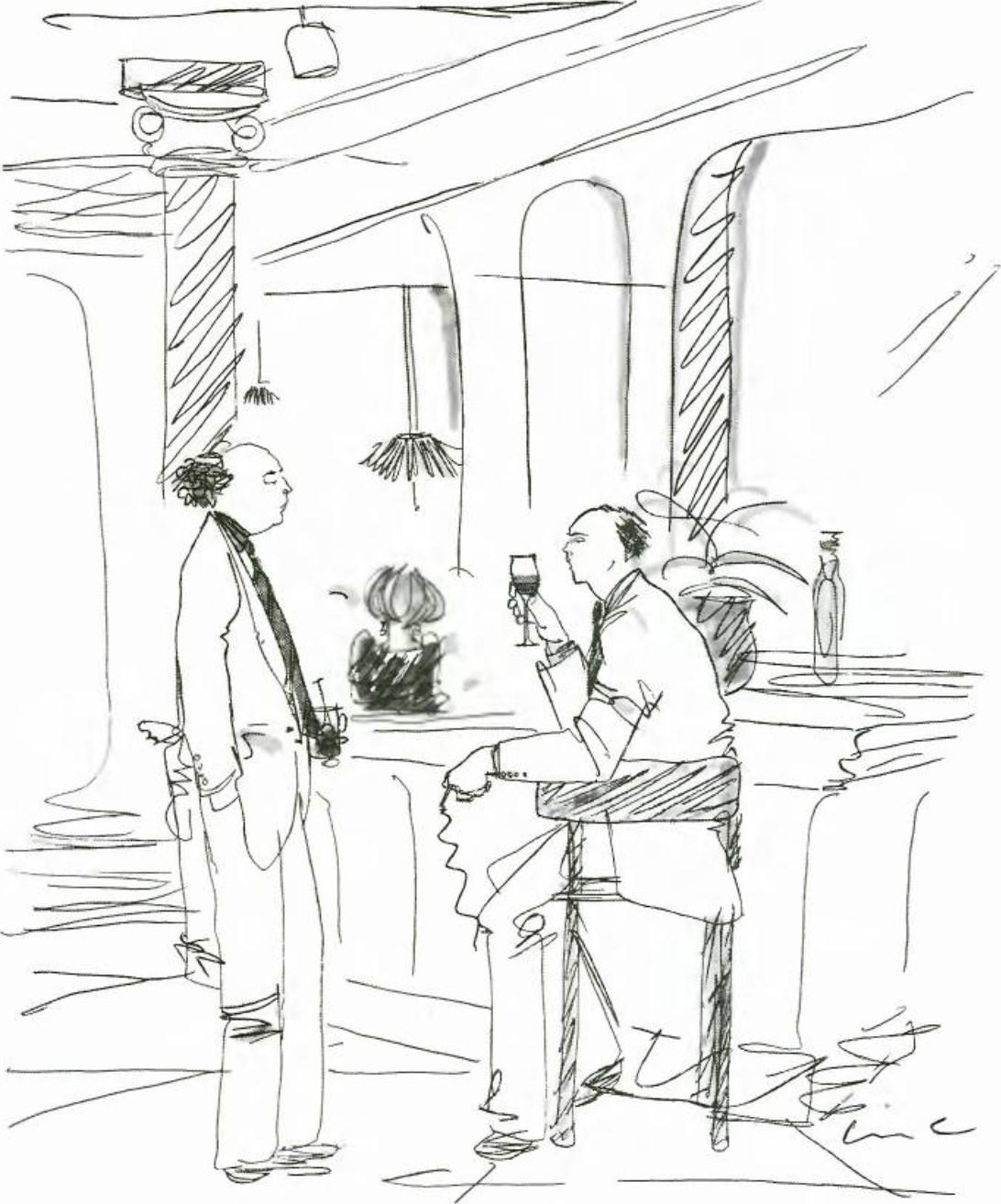
In 1967, Texaco made the first major discoveries of commercial oil in the Oriente. In 1972, it completed a three- hundred-and-twelve-mile oil pipeline from the Oriente to Ecuador’s Pacific coast. Over the next seventeen years— until 1989, when Petroecuador assumed operational control of the pipeline—it shipped 1.4 billion barrels of oil through the pipeline. The pipeline ruptured twenty-seven times, spilling what was estimated to be 16.8 million gallons of raw crude (more than the Exxon Valdez), most of it into the Oriente’s delicate web of rivers, creeks, and lagoons.
Although the Oriente is a biological treasure chest—about the size of Alabama, it is home to what are estimated to be eight to twelve thousand species of plants, or up to five per cent of all the plant species on earth—almost no attempt was made to assess the environmental impact of oil development until 1989, when a woman named Judith Kimerling came to Ecuador and began to stick her nose into things. A graduate of Yale Law School, and a former environmental litigator in the office of the New York State Attorney General (she helped to prosecute the Love Canal case), Kimerling has spent most of the last four years investigating the Company. Travelling by foot, canoe, and truck, sleeping in Indian homes, she has visited producing wells, exploratory sites, and seismic trails. She estimates that in addition to the pipeline spills—the pipeline is now all but worn out and ruptures with increasing frequency—the petroleum industry is spilling ten thousand gallons a week from secondary flow lines and is dumping some 4.3 million gallons of untreated toxic waste directly into the watershed every- day. Where the Company is at work, she says, malnutrition rates in the local population are as high as ninetyeight per cent, and health workers report high rates of cancer, birth defects, and other health problems linked to contaminants. Kimerling has little doubt where the blame resides: nearly all the oil produced in the Oricnte was produced by Texaco and Petroecuador. ‘Texaco was the teacher,” Kimerling says. “Petroecuador was the student.”
What this means for the local people can be seen in almost any of the hamlets and well sites outside Coca. I was able to visit perhaps twenty such sites. The Quichua village of San Carlos is typical. The president of the community, Ignacio Sequihua, took me to see an oil well drilled by Texaco in 1977 and turned over to Petroecuador in 1990. It sits on one bank of a small creek that drains into the Manduro River, which, until Texaco arrived, was a principal source of fish and of drinking and bathing water for San Carlos. There is a waste pit next to the well. The pit, about the size of an Olympic swimming pool, is simply a hole dug in the forest floor. According to Kimerling, raw crude oil, toxic drilling wastes, formation water (water that is pumped up from the ground along with petroleum and carries such heavy metals as arsenic, cadmium, cyanide, lead, and mercury), maintenance wastes (including industrial solvents and acids), and the related effluvia of the oil-extraction process are regularly dumped into such pits, and the pits regularly wash out in the Oriente’s heavy rains. Here black, tarlike pit waste coated both banks of the creek. It covered every rock and branch jutting out of the creek, and it spread in a glistening black carpet down the banks and as far back into the forest as I could see. When I reached into the creek, my hands came out covered with black goo, and I couldn’t rinse it off.
“Now Texaco is gone, and the Company says the wells are cleaned up,” a woman said. “How does it look to you?”
‘When Texaco came, they didn’t ask us for permission to enter,” Ignacio Sequihua said. “They didn’t talk to us at all. They just came.” The villagers cut down trees and blocked Texaco’s trucks for a month, until the military’ threatened them. “We were afraid they would attack us at night, so we stopped the blockade and signed an agreement with the Company. We had no choice.”
Since Kimerling published her findings, in a book entitled “Amazon Crude,” she has received so many physical threats that she will no longer travel in the Oriente without an escort. Petroecuador tried to have her deported, and though it was dissuaded by the American Embassy, which argued that making an international incident of Kimerling’s investigation would only draw further attention to it, she was arrested by the military, who control most of the oil-producing territory. She has also spent weeks bedridden with shigellosis, a rare bacteriological infection she picked up in the field, and until July of last year, when she was awarded a grant from the MacArthur Foundation—on her thirty-sixth birthday—funding for her research was so scarce that she often lived hand to mouth in one of the poorest countries in the hemisphere.
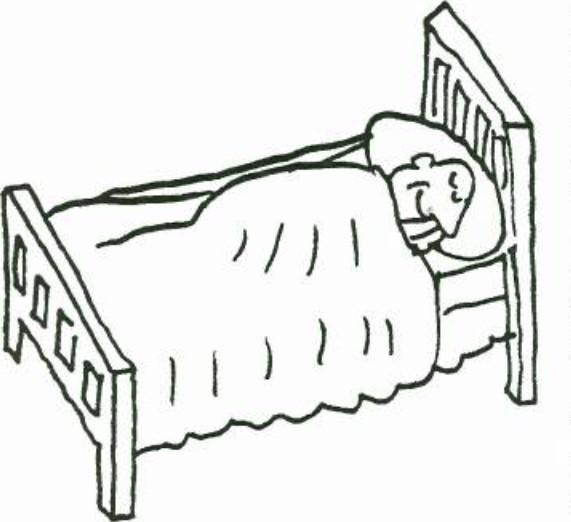
Difficult as things became for her in Ecuador, however, Kimerling says she suffered most at the hands of two men she considered her allies—Robert Kennedy and S. Jacob Scherr, the director of the Natural Resources Defense Council’s international program. In 1990, Kennedy and Scherr asked her to show them the Oriente, which neither man had ever seen, and she took them on a five-day tour. Powerfully moved, they hired her, and together they wrote to Edgar Woolard, the chairman of DuPont, to condemn Conoco’s plans.
Though Conoco would be the first company ever to produce oil inside the Huaorani homeland, it represented something even larger: what it had discovered beneath the virgin rain forest inhabited by the Huaorani was substantial deposits of heavy crude, the production of which has only recently been made commercially viable by technical advances, and which the Oriente has in abundance. The Ecuadorian government was counting on Conoco to launch “the era of heavy crude,” for which the Company predicted the country would receive three billion dollars in foreign investment through the end of the century, and tens of billions more in revenues. Conoco, in other words, was the key to opening up huge tracts of the Oriente to oil exploitation. However, it was so staunchly opposed by activist groups in the United States, Ecuador, and Europe that in late 1990, facing serious talk of a boycott, Edgar Woolard indicated that unless Conoco could come up with a sign of support from its opponents he would consider shutting down its Ecuadorian operation.
When the N.R.D.C. entered the battle, Conoco requested a meeting. It took place in the N.R.D.C.’s Manhattan office in November of 1990, and Kennedy and Scherr, in an abrupt about- face, left it convinced that forcing Conoco out of the Oriente would be a mistake—that Conoco would do a cleaner job than the companies that would move in if Conoco pulled out. Conoco’s attitude was “ We understand your complaints about the plan, and we’re willing to fix it,’ ” Kennedy said later.
Kimerling was aghast. “We had clear instructions from the people we were working with in Ecuador that they did not want Conoco to go forward,” she said.
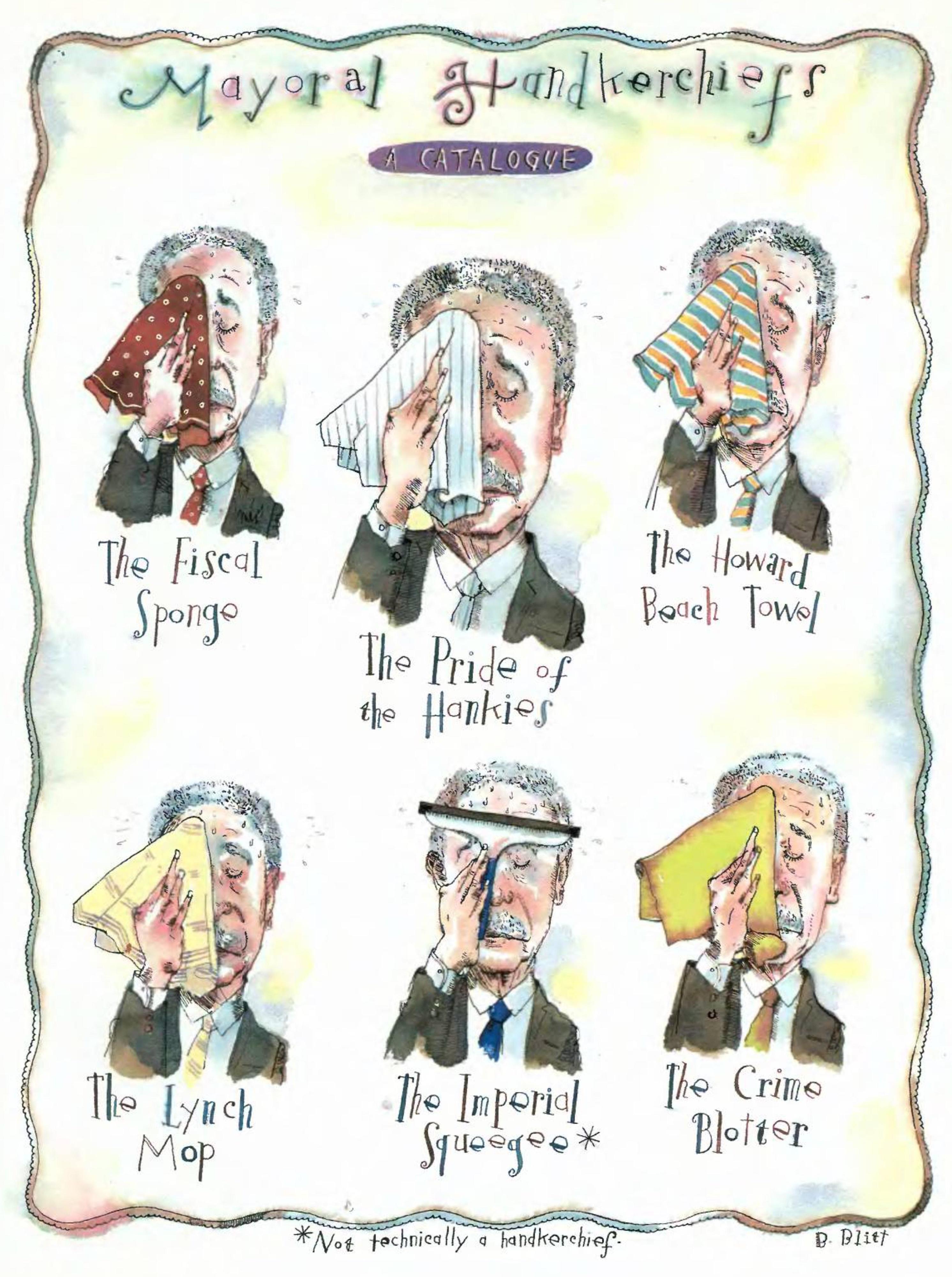
“If a deal was going to be made, that decision had to be made in Ecuador.” When she refused to fall into line, she was fired.
At a second meeting, held in New York the following February, Conoco offered to put up ten million dollars toward a nonprofit foundation in exchange for the N.R.D.C.’s endorsement. “Do you know what that would mean down there?” Kennedy asked me a few months later. “We saw a hospital in the Oriente that was operating on a budget of three thousand dollars a year. If you had that kind of money, and you had it in a framework where the Indians couldn’t steal it, you could make a vast difference. And you would have a model. The Indians could then go to any oil company that came into the Oriente and say, You have to match this.’ They’d be getting more than a piece of cash—they’d be getting a way to ratchet themselves into the corridors of power. They’d be able to stand up to the military, and the government would have no choice but to deal with them. Conoco was the ideal place to start that process.”
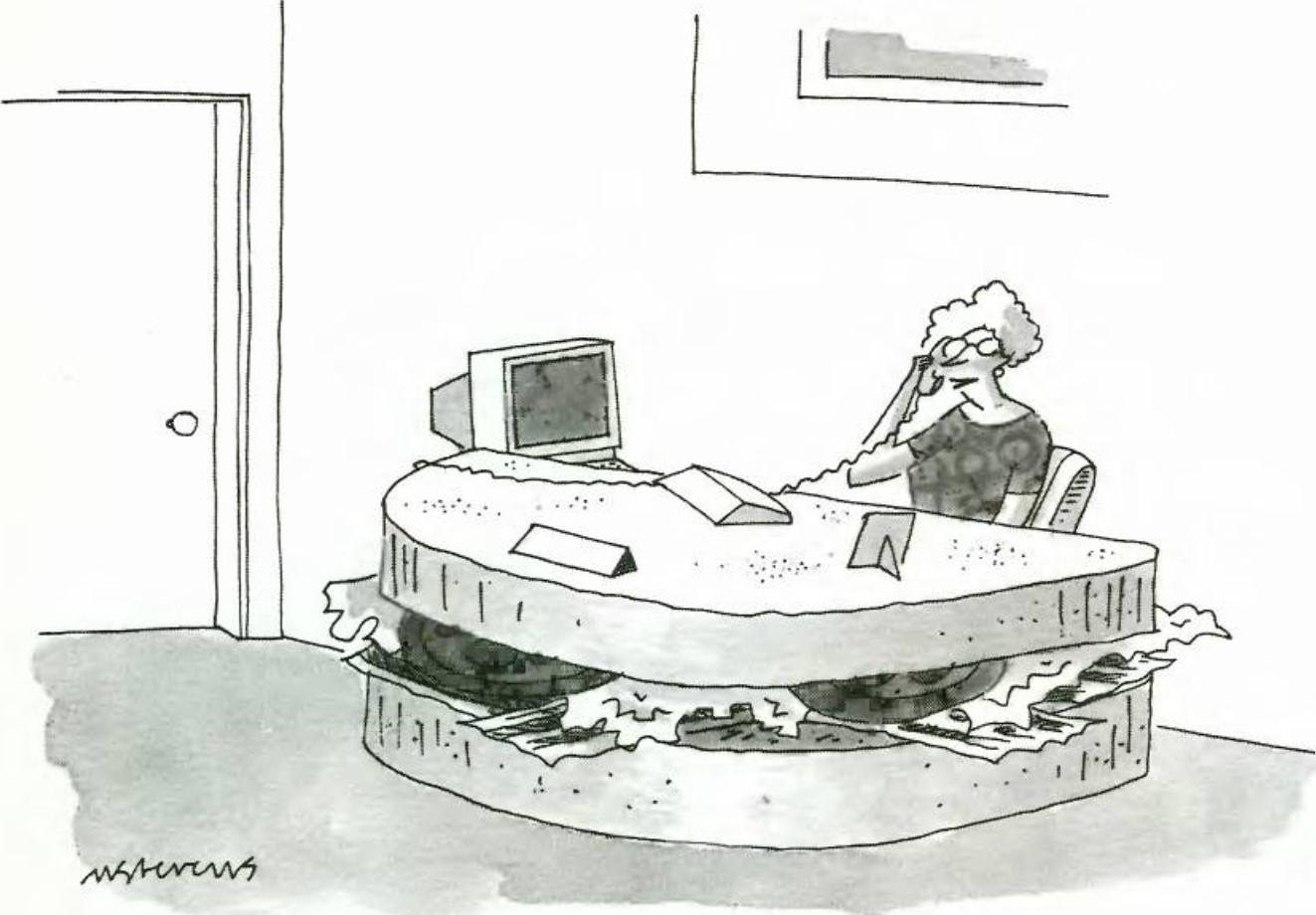
In March, Kennedy and Scherr sought out Valerio Grefa, then the president of the Confederation of the Indigenous Nations of the Ecuadorian Amazon (CONFENIAE), the umbrella under which the political leaders of seven of the Oriente’s indigenous groups come together. For the most part, these groups are small—there are perhaps five hundred Cofan left, and maybe seven hundred Siona-Secoya—and, aside from local contact with colonists, missionaries, and the Company, they are extremely isolated. (Though the Cofan and the Huaorani live less than a hundred miles apart, for example, travel between their two territories is so physically difficult that the two nations have no contact.) By contrast, there are about ninety thousand Quichua and fifty thousand Shuar, they are not only the Oriente’s largest nations but its most politically and economically acculturated. Quichua and Shuar leaders travel to the United States and Europe, and their federations have airplanes, radio networks, and urban offices.
The Quichua and the Shuar have always controlled CONFENIAE, but in the past they did so with a spirit of inclusion—it was through the auspices of CONFENIAE, in fact, that the Huaorani gained official title to part of their traditional territory. That spirit faded in 1991, when Valerio Grefa became president. A Quichua, and known in some parts of the Amazon as El Vaselino, he quickly rekindled the centuries-old enmity between the Huaorani and the two larger nations, which have long coveted Huao land. Among other things, ONHAE has publicly accused him of stealing funds raised in its name. Grefa denies the charge. Still, it was with Grefa that Kennedy and Scherr met to discuss, in essence, the sale of the Huao homeland; they clearly considered this tantamount to speaking with the Huaorani. (“Well, who are the Huaorani?” Kennedy asked me.) Grefa immediately presented a counterproposal. For CONFENIAE’s blessing of the Conoco project, he wanted not five or ten million dollars but two hundred and eleven million, or about a dollar a barrel for all the oil in Block 16. Tn some of the Quichua communities,” he later told Nanto and Moi, “we have just had to accept the fact that the Company is here, and work from that.”
Confidential notes of the second N.R.D.C. meeting with Conoco were leaked to every’ nonprofit in the world with an interest in the Oriente, and the N.R.D.C. quickly found itself under wide attack. In late May, Kennedy and Scherr again flew to Ecuador, where they’ were greeted, loudly and rudely, with picket lines supported by La Campana Amazonia por la Vida, a coalition of thirteen Ecuadorian environmental and human-rights groups. “Robert Kennedy and Jacob Scherr are what we call environmental imperialists,” Esperanza Martinez, who was then a coordinator of Campana, told me. “They came to Ecuador for five days, and then they went home and sat down with an oil company’ and decided they knew what was best for us. What on earth gave them that right?”
Meanwhile, Kennedy and Scherr had relayed Grefa’s offer to Conoco. It was about then, seemingly out of nowhere, that the ONHAE letter surfaced in the United States. Suddenly’, Conoco wasn’t sure just who spoke for the Huaorani. It appeared that Robert Kennedy didn’t; it appeared that maybe Valerio Grefa didn’t, either. As for the Huaorani themselves—who, indeed, were they?
By the time the morning sun burst above the jungle wall, Enqueri and I and our truckload of Huaorani were a good twenty miles out of Coca, driving down the Via Auca toward the Huao territory, and I’d already broken into what would become a monthlong sweat. I had anticipated a brief fact-finding tour, as it turned out, I was in and out of the Huao lands a dozen times in the next eighteen months.
The territory is about a hundred and seventy miles wide, east to west, and roughly a hun- dred miles long, but it is split by the Via Auca. From Coca the Auca runs sixty miles due south into the territory, but for four miles on each side of the road the land has been set aside for colonization. This zone, which on a map appears jarringly foursquare amid the graceful curves of rivers and creeks, is a legacy of the symbiotic relationship between American evangelical missionaries and the Company. When Royal Dutch/Shell was exploring the Oriente in the nineteen-forties, the Huaorani reacted as they had to every other aruwde encroachment for as far back as anyone knows: they resisted violently, killing hundreds of peasant workers and looting the camps. But in the late nineteen-sixties and seventies, in understandings with the government and with Texaco, Rachel Saint and other North American missionaries affiliated with the Summer Institute of Linguistics (a worldwide evangelical network, with headquarters in Texas, that is dedicated to translating the Bible into indigenous tongues) conducted a program of pacification that, with the aid of magic and trinkets—airplanes and salt—lured the Huaorani into a small protectorate on the far western edge of their traditional lands. This move helped Texaco blaze the route of the Via Auca, which opened the Huao homeland to large-scale colonization for the first time and promoted exploration by several other oil companies, including, most recently, Arco, which last year announced that it had found, in a concession that comprises both Huao and Quichua land, an estimated hundred and sixty-four million barrels of crude.
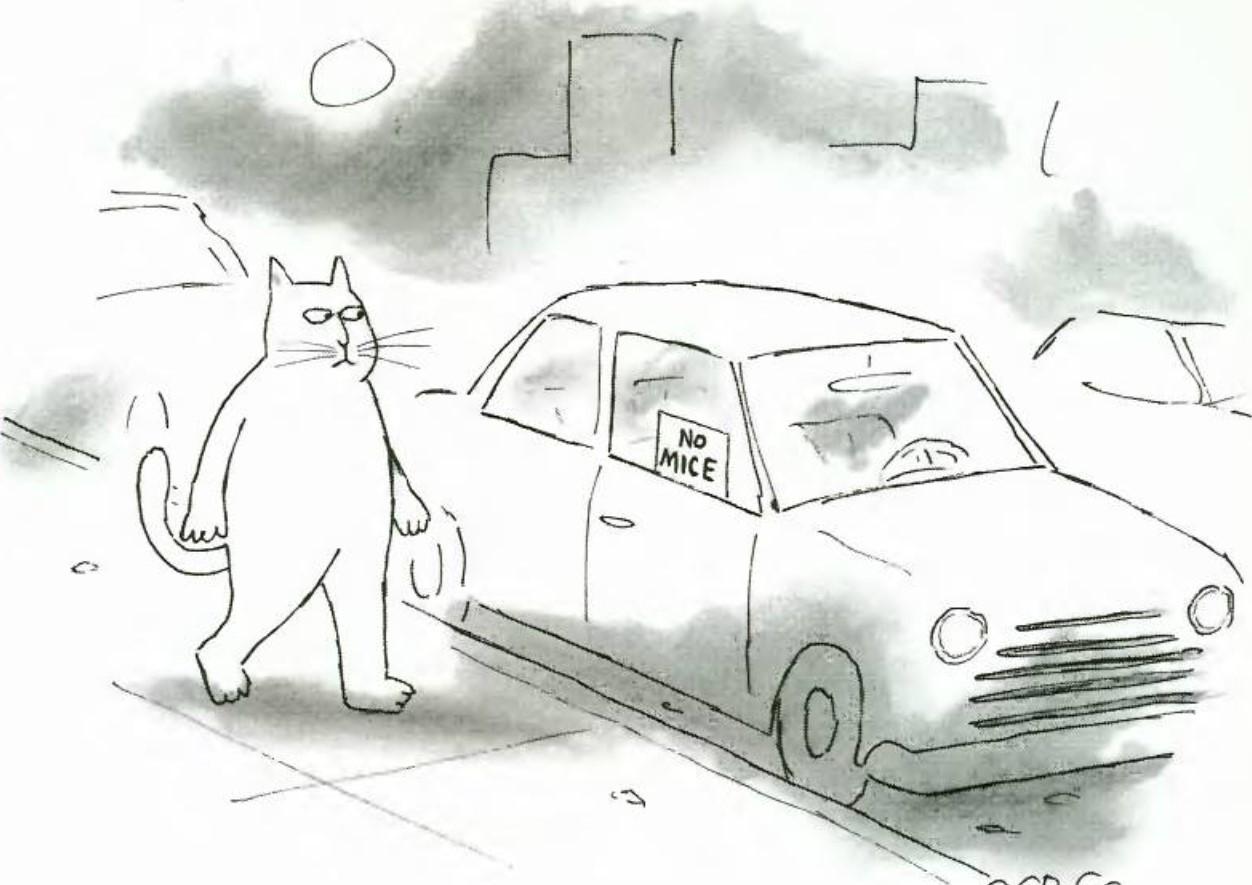
For almost the entire four hours it takes to drive the length of the Via Auca, a rusty steel pipeline runs alongside the road. Actually, it’s several lines: a main line, about three feet in diameter, and one or more auxiliaiy lines, which are fed from pumping stations built by Texaco and Petroecuador. In some places, the pipeline rests right on the ground, and in others it’s raised on stilts. Men tether their horses to it, and women spread their washing on it to dry, and children play on it. On a clear day, the metal soaks up so much equatorial sun that it’s hot to the touch, but when you can rest a hand on it you feel the oil pulsing along inside. Every few miles, the line passes a separation station, where a flame as big as a house flares from a metal stack, burning off natural gas. The flames, visible for miles, bum night and day, producing such intense heat that colonists- spread their coffee harvest beneath them to dry.
Oil and waste spills are common on the Auca. Trucks plow into the pipeline, trees fall on it, and in some places it is nearly rusted through. The pipes have no check valves, and when one of them ruptures it can spill for days, until someone at a receiving station far down the line notices a drop in production. Sometimes the waste spills are deliberate. Two- thirds of the way down the road, at the Shiripuno River, there is a Texaco well inherited by Petroecuador. “The Company dug a canal from the waste pit to the river, and it drained right above a
Huaorani village,” Enqueri said. “Children were swimming in the river. When they came out of the water, they had black all over their bodies. They were asking, “What is this?’ Nanto went to the Company, but the Company said the spill hadn’t happened. There was nothing we could do.”
From beginning to end, the Via Auca is lined, in ones and twos and in clumps, with the colonists’ rickety wooden shacks. The colonists come from the dry hills of Ixjja, in southern Ecuador, and from the coast, and from the Oriente itself—many of the new settlers are Shuar. They raise cattle and coffee—neither of them well suited to the area’s poor soils— but mostly they work for the Company, cutting roads, digging wells, cooking food. The colonists suffer, and their children are often hungry and sick. Still, they say that life on the Auca is better than the life they left behind. By law, the land was there for the taking, free to anyone willing to cut down the trees and work it, and in Ecuador land, no matter how poor, has always been the true measure of wealth.
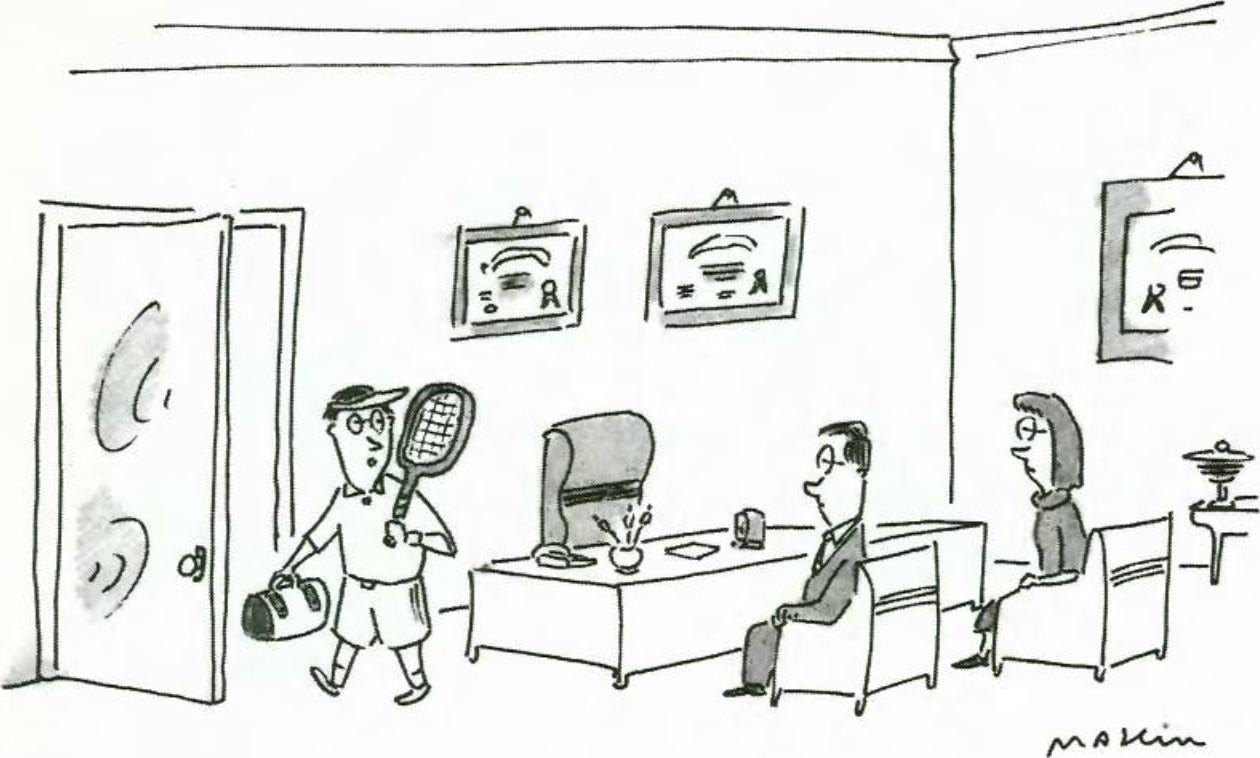
Bored with the trinkets and magic that had drawn them to the protectorate, however, several Huao clans have drifted back to the Auca, and today the mood along the road is undeniably tense. (The Quito media have taken to calling the situation there a war.) Violent confrontations between the Huaorani and the colonists—especially the Shuar—are common. When Enqueri and I left Coca, in fact, the word on the street was that a Huao had been killed near the Shiripuno, and when we arrived at the Shiripuno bridge two dozen colonists and a handful of Huaorani were engaged in a heated argument in the middle of the road, their anger held in check only tenuously by a Capuchin priest and a gang of nervous soldiers. Nobody was dead, but shots had been fired and houses burned. Enqueri defused the situation by giving the Huaorani much of the food and gas we were carrying and sending them downriver, but no one pretended that this was anything more than a temporary solution. “It will get worse before it gets better,” the priest said.
Enqueri showed me an exploration camp that had been operated by Unocal from 1989 until 1991. When the camp was abandoned, a Huao clan tore it apart, to prevent it from being taken over by the military, and then built huts on top of the old concrete foundations. Anything the Huaorani hadn’t destroyed they put to use. In one hut, a wood fire burned on a linoleum floor, and the head of a wild boar had been strung on an electric cord to smoke; in another, masticated yucca fermented in a stainless-steel sink. In several homes, sheets of heavy plastic had been fashioned into hammocks, and drinking water was stored in old gasoline cans. At the last home we visited, I found a shelf full of drugs: erythromycin, codeine, penicillin, and half a dozen others. The man of the house said that the Company had given him the medicine, and that his family took it for coughs.
“Which one do you take for coughs?” 1 asked.
“They are all the same,” he said.
Beyond the camp, the Via Auca died into a small, muddy track nearly overrun by vegetation. Enqueri and I walked a few hundred yards down the track, into a gully, and there we met a Huao family returning from what they considered a wildly successful hunting trip. They were a father, a mother, a young son, and a toddling daughter, they carried a shotgun, a spear, and a blowgun; and their prize, which they were rolling uphill with great effort and greater glee, was a badly dented fifty-five-gallon drum that had been discarded in the bush when Unocal abandoned its camp. The drum was clearly full, but of what no one knew. “It could be diesel,” Enqueri said, “or extra,” which is what the Huaorani call all gasoline, “or it could be forty-forty-one- hundred”—motor oil—“or it could be something else,” which in all likelihood would be chemical waste. Whatever was in the drum, the family hoped to burn it in the kerosene lamps that the Company had left behind. “The Company hid many of these barrels around here,” Enqueri said. “At least, they thought they hid them. But you cannot hide anything from the Huaorani.”
The mud track led to an exploration well that had been operated until 1990 by Petro-Canada. Lured by the prospect of easy booty—by then, the Company, resigned to the inevitable, was allowing the Huaorani to help themselves to food and clothing if they didn’t molest the camps— three clans left the protectorate to compete for looting rights to the Petro-Canada site, and within weeks it was occupied by dozens of Huaorani. One clan was led by a man named Babae, whose father and grandfather had hunted the area tamed by the Via Auca. In 1989, the Company moved Babac’s clan, by helicopter, to a new village, which it had built for them on the Via Auca. When they had settled into their village, which consisted of twelve one-room shacks, Babae held a celebration feast. No other Huaorani attended, but the Company came, and so did the missionaries and the military’; and Babae drank his first hard liquor, initiating a habit that soon landed him in a mission-run detox program. Before long, the clan women in the village were working the oil camps as prostitutes, and many Huaorani were sick with cowode disease. The next year, the colonists who had been thrown off the land so that the village could be built returned and burned it. But the Company kept Babae happy with gifts, and built him a new house, of three rooms. Enqueri took me there. Deep-chested and broad-shouldered, Babae radiates physical strength. He is said to have a violent temper, it inspires fear all along the Via Auca, in colonists and Huaorani alike. His father had been a fearsome warrior. “He died in battle,” Babae said. “Not far from here.”
Enqueri had brought him rice and fishhooks. At this, Babae grinned hugely, flashing a mouthful of gleaming teeth— Company dentures.
Babae was proud of his new house, though it was built of planks rather than the traditional thatch, and had no windows, and was as dark as a cave, and felt hot enough to bake bread in. One room had a foam mattress, gnawed to shreds by rats. This, Babae said, was where tourists would stay. The family cooked in the next room, on a pile of sand that had been poured onto the wood floor, and slept in the third, which was carpeted wall-to-wall with Company flotsam: candy wrappers, discarded tuna tins, spent shotgun shells, a couple of car tires, a broken radio, several empty rum bottles and cigarette cartons, an empty fuel can, old magazines and newspapers. Babae pointed out the light fixtures and the wall sockets. The house had no electricity, of course. The Company, he said, had given him a generator, but someone had come in the night and stolen it.
ENQUERI and 1 headed for the Shiripuno River, where ONHAE kept a funky canoe. Carved from a single tree trunk, it was about twenty feet long and two feet wide, and it was patched with bits of tin, cloth, leather, and, directly beneath me amidships, a one-litre plastic Coke bottle butterflied and flattened and nailed over a long crack.
The silt-brown Shiripuno slips slowly east into the green Cononaco, which, in turn, slips into the Curaray somewhere near the Peruvian border. On even the best maps of South America, this seventy- mile watershed is blank. Running with the current through a forest that grows ever richer, with parrots, turtles, caiman, monkeys, herons, the occasional harpy eagle, and even the golden flash of a jaguar, a canoe takes three days to reach the clearing where Quemperi and his clan have settled. It’s about as far as one can go in the known Huao world, and we had to skirt the northern boundary of the territory hunted by the Tagaeri, the clan that killed Alejandro Labaca. Occasionally, there are rumors of a Tagaeri sighting, and it is said that in 1989, as Labaca had feared, the Company killed Tagae, the clan’s leader. Beyond that, there has been no contact with them, but it is widely believed that they watch everything that happens on the Cononaco. “Sometimes you’ll be walking in the forest and you’ll hear a kissing sound not far away,” a guide in Coca had told me. “That’s the Tagaeri. But you’ll never see them. They’ll kill a noisy baby before they’ll give themselves away.”
Farther downriver, in the forty or so miles between Quemperi and the Peruvian border, there are said to be two more clans. Last year, a Company seismic crew were the first to spot a group thought to be the Taromenane. The other Huaorani clans maintain that the confrontation was violent, but the Company denies this, and, in any case, the Taromenane have not been seen again. The second group, the Onamane, has never been reached; its existence is suggested only through the songs of the Huao elders.
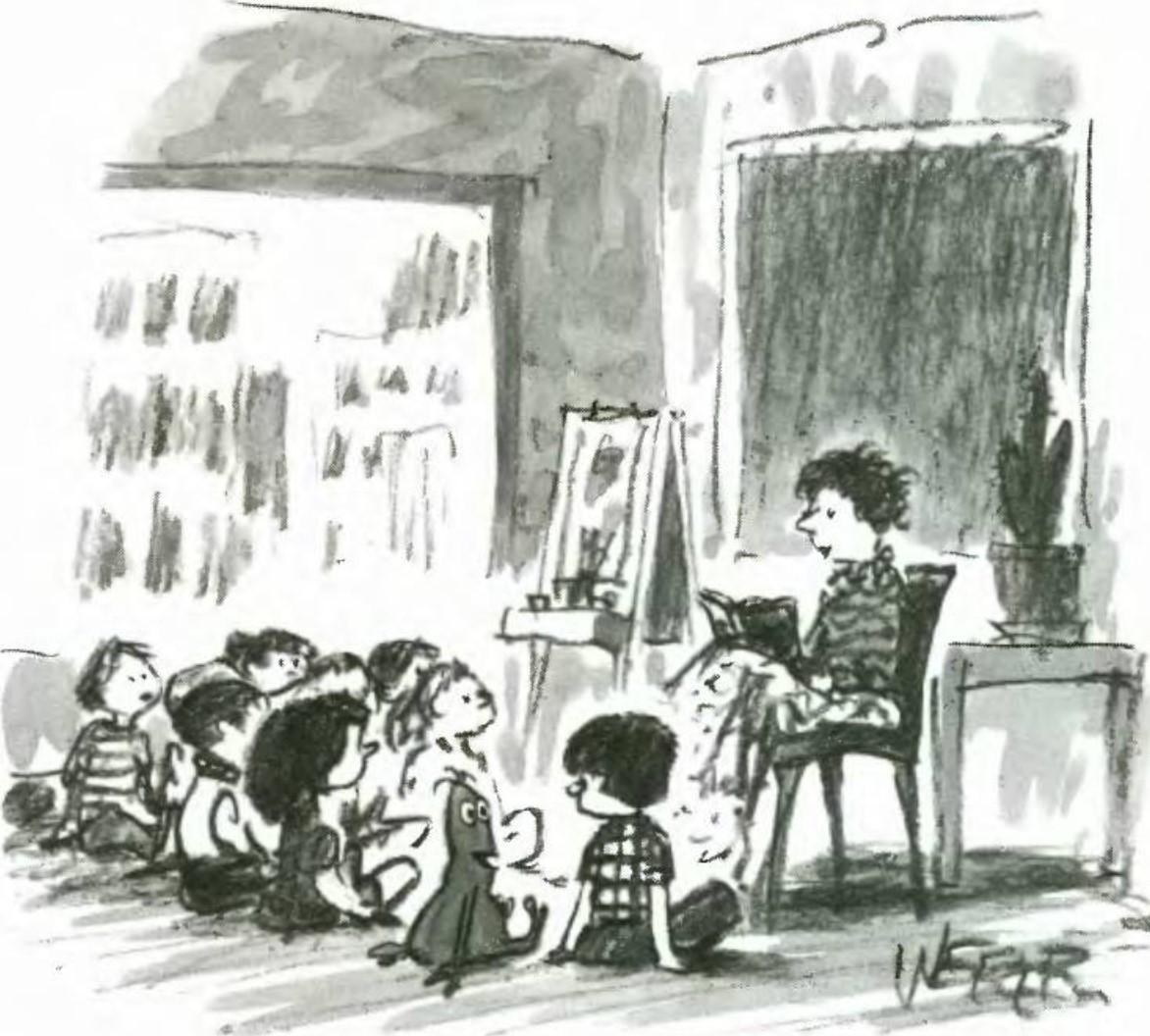
As Enqueri and I drifted downriver, Huaorani appeared out of the forest in twos and threes, bearing children, shotguns, and pots of chicha, and after a momentary pause to twist my chest hairs or grab my crotch, and another moment to hiccup with laughter, they clambered aboard our canoe. Though it was soon filled beyond capacity, no one was refused. Time and again, Enqueri piloted us into rocks and snags, but only the boat’s lone conode seemed surprised or disturbed. With earsplitting shotgun blasts, an old man riding in the bow killed a guanta, a couple of woolly monkeys, and several turkeys, and throughout each of these messy affairs—the game was hauled in and cleaned, and blood coursed thickly through the canoe and coated my bare feet—the other Huaorani roared so enthusiastically with advice and approval that they nearly tipped the boat over.
Enqueri released the tiller only once all day, and that was to lace his hands on top of his head. “When a Huao sees a girl he likes, he drops one hand, like this,” he said. “That means ‘Meet me over there.’ ” Or he might point discreetly with a forefinger. “And, if you think a woman wants to make love with you, you wink your right eye to say yes and your left eye to say no.” He winked his left eye. “But Enqueri can’t close his right eye!” he said. He tried, grimacing with effort; his lid stuck like a jammed window shade. “See? It doesn’t work. So Enqueri has a hard time getting women!” At this, he laughed so hard he doubled over. The canoe ran up on a submerged boulder and, with a sound like a gunshot, a crack five feet long opened in the floor. Water raced into the boat. Howling wildly, women reached under their skirts and ripped off their underwear, and men pulled small rocks from the river. They stuffed them into the void, then bailed and kept going. Soon the stories started. The Huaorani would be telling this one for days.
To my eye, the only sign that we had reached Quemperi’s settlement was the sudden appearance along the right bank of some thirty Huaorani. They were standing in a long line: some held spears; some were naked. They neither waved nor spoke; they simply stared. After Enqueri and I climbed a fifteenfoot mud bank, a short, potbellied old man with a single tooth in the middle of his upper gum walked up to me, indicated that I should open my mouth, then tapped my teeth one by one. He said something in Huaorani, and a roar of laughter went up.
“Quemperi says welcome,” Enqueri said. “He wants to know if you’ll give him your teeth.”
Until very recently, Quemperi and his clan roamed widely between the Co- nonaco River and the Yasuni, to the north, changing homesites every few months, alternating among half a dozen yucca gardens, and ferociously defending their hunting territory. A few years ago, however, they settled more or less permanently around an airstrip that the Company had built on this broad bend of the Cononaco. The pista, as it’s called, was intended to be temporary, but the Huaorani are fastidious about keeping it free of brush. From their point of view, it’s a kind of trap, really, which from time to time catches missionaries, tourists, or the Company. The comode don’t come often, but when they do they always bring gifts. Most I luaorani have never seen a car, a horse, or a bicycle, but the airplane has become as integral a part of their world as the blowgun, the banana, and the boar. They will have identified the make of an inbound craft long before a visitor can hear it coming (“Cessna!” they yell, racing for the pista), and, when the plane revs up to leave, the young Huao men plant themselves behind the tail, baring their chests to the fusillade of rock and dirt blasted their way by the prop wash.
Despite the pista, Quemperi and his clan live much as the Huaorani have lived for centuries. Though scabies and skin funguses are common, and phlegm- larded, tubercular hacks often split the night air, they are a healthy people—at least, compared with the Huaorani living in the protectorate. They long ago developed treatments for the illnesses indigenous to the area, and, because they have had only sporadic contact with the Company, they have avoided many of the viral infections that in the last twenty years have become the major cause of I luao death. Turkey, monkey, caiman, and boar are plentiful, and so is material for spears, blowguns, hammocks, and string bags. Nevertheless, life is often brutal. In his twenties, Enqueri had already reached middle age. Typically, the body of an adult Huao man will display half a dozen major scars, from staph infection, shotgun and outboard-motor accidents, falls, animal and snake bites. Many Huao are missing pieces of fingers and toes and large chunks of flesh, and in the entire adult population there is probably not a single full set of teeth.
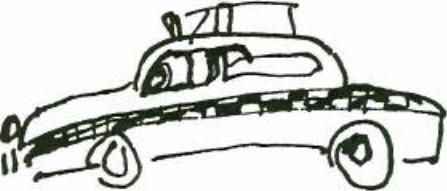
There are ten houses around the pista, most of them of the traditional, thatched- A-frame design, with the roofs extending to dirt floors; they are cool and pleasant. When the Huaorani are not out hunting or gardening, or when it is raining, which is often (the first Huao phrase I learned was “It’s wet around here”), they spend many hours in their hammocks. Sometimes they” are resting, but usually they are working—sharpening a spear, perhaps, or braiding palm leaf into cord, or chewing yucca, which will be left to ferment into chicha. They talk constantly. Their material goods are few: a typical house will have a couple of machetes, a shotgun, some spears and blowguns, two or three cooking pots, and several hammocks. In fact, the Huaorani consider materialism impractical, because it isolates the individual from the group, and so makes survival more difficult.
A fire bums most of
the day, and a visitor is always offered something—chicha, banana juice, a piece of boiled yucca, a smoked monkey arm. Some of the men, most of the women, and all the children go naked, or wear a thin strap about the groin. In older times, the entire clan slept in one big house, but now each household sleeps around its own fire. During the night, one or more of the adults will awaken and sing. The songs, rendered in a haunting three-note scale, and finished with a short, invigorating yodel, tell of hunting, travel, the history of the clan, war, love. A visitor, even a comode, is welcome to sing; I sang about the first time I saw a monkey roasting on a fire, and how, as the skin shrank back from the skull, I thought I was watching a hideously grinning dwarf being burned alive.
I stayed with Quemperi, sleeping on his dirt floor, Huao style: wherever I happened to drop. Quemperi has a gentle disposition and a generous nature: he would never eat until I’d had my fill, and when he hunted he usually brought some grandkids along for instruction, and he always chuckled to himself while doing such quotidian tasks as making blowgun darts, weaving fresh leaves into his roof, and hauling water. But it would be foolhardy to think Quemperi anything less than a warrior. Around the fire, he spoke of killing Ecuadorian soldiers for their machetes, and Peruvian soldiers for their boots, and oil workers for their food and T-shirts, and Quichua for daring to cross the Napo into Huao land. Smiling, he told the story of Tona, one of the first Huaorani converted by Rachel Saint. Tona travelled to the Cononaco to preach to Quemperi, and brought with him an evil so strong that it killed a child. Quemperi asked Tona to help him make spears. When the spears were ready, Quemperi said, he and seven other Huao men turned on Tona and, one by one, thrust them home. Quemperi went last, using a spear that Tona himself had made.
Z^XUEMPERI usually sat beside the fire when we spoke, but when he discussed the Conoco road he stood up and declaimed loudly and forcefully, sometimes stamping his feet for emphasis. It was the only time I saw him angry—indeed, it was the only time I saw any Huao angry—and the display was a frightening one. His rhetoric was direct: a road means bad hunting; game won’t cross it; colonists will come and cut down the forest and kill the animals. A road, in other words, means hunger, it means the end of abundance, and the end of the self-reliance and independence the Huaorani value above all else.
The ninety-mile road that Conoco proposed to build, and along which it would develop all its hundred and twenty wells, would terminate in the heart of Quemperi’s traditional hunting territory.
By then, it would have traversed the territory of the five or six clans that inhabit the area north of Quemperi, and it would have opened up to petroleum exploitation—by Conoco and by the growing list of companies counting on the infrastructure Conoco would build—the homelands of the Tagaeri, the Taromenane, and the Onamane, if they exist. The dangers the road poses for the Huaorani are, of course, immense—exposure to a simple flu, for example, could wipe out the groups never before reached. To its credit, Conoco, while finishing its exploration phase, sent an anthropologist, James A. Yost, to speak with the Huaorani living in and around its concession. (Yost had been affiliated with the Summer Institute of Linguistics, and had worked among the Huaorani on and off for a decade.) In a report Yost told Conoco that although these Huaorani had already had some contact with cowode, mainly from oil exploration, their social, economic, and political structures had changed very little, because the}’ had been able to absorb the inevitable changes on their own terms. He warned, however, that “to lose any more land or resources will result in deculturation and cthnocidc.”
Yost’s chief fear was colonization along the road, and Conoco had incorporated into its management plan such preventive measures as gates, guards, patrols, and satellite surveillance. But none of these measures had ever been tested. Obviously, there was no proof they would work. Conoco executives couldn’t provide a single example of a road anywhere in the Oriente—indeed, anywhere in the Amazon—that had not been colonized.
Inevitably, in such discussions someone brings up the fact that colonization of the Conoco road would be illegal, because it would be inside the Huao reserve, but that point is never pursued with conviction. Even the Company recognizes that in Ecuador such laws, like many other good ones, are irrelevant, because the government has little inclination to enforce them. Colonization is illegal inside the Cuyabeno Wildlife Reserve, which is about twenty miles north of the Huaorani, yet more than four thousand colonist families have settled along its oil roads since 1979 and the government has not made even a pretense of trying to remove them.
Dr. David Neill, an associate curator of the Missouri Botanical Garden, who is working in Ecuador, has been hired to catalogue and replant the forest that will be destroyed as the Block 16 road is built. In an interview, he started to describe his reforestation program, then stopped, let out a long sigh, and said, “Technically, our program might work—we can grow trees—but so what, if somebody comes in and cuts them down? 1 decided to work with the oil company because 1 thought that if I didn’t it would be worse, but I’m not optimistic. The Ecuadorian economy is a shambles, and people need to survive. The colonists arc going to go in there because they have no alternative.” As for Yasuni National Park, which abuts the Huao territory and overlaps Block 16— and is of such immense biological importance that it has been declared a Biosphere Reserve by the United Nations—its future, he said, “is in grave doubt.”

Walking with little rest and no food, a Huao typically makes the seventy-five-mile trek from the Cononaco to the Yasuni, and Block 16, in two days. For this arwode, alas, it took three times that, even though my pack was considerably lighter than I’d planned: the first night out of Cononaco, I discovered that my Swiss Army knife, my compass, my emergency food supply, a pair of pants, a roll of duct tape, my extra socks, and my sandals had all been looted. Enqueri shouted with laughter. “The Huaorani,” he said. “They’re the worst? He had little sympathy for me. His travelling kit consisted, in its entirety, of a machete, a camouflage baseball hat, shin-high rubber boots, and the men’s undershorts he’d bought in Coca.
“Green wall” is a phrase often used to describe Amazonian bush, but in all my wanderings in the Amazon I’ve never seen anything quite so wall-like as what we found when we reached Block 16. Great chunks of the forest had been cleared for seismic lines and helicopter pads, and the new understory had grown back so densely that it was impassable, even with the aid of a machete. It was a visceral demonstration of the impact, largely ignored but difficult to overstate, that seismic exploration has on the forest. The only independent environmental review ever made of an oil development in the Oriente (a study of an Arco concession) suggests that seismic exploration is enormously destructive, in part because it is a system developed for use in far more arid regions. At intervals of one mile, ten-foot-wide trails are cut across the concession. Dynamite is detonated ever}7 three hundred yards along each of these trails, producing seismic waves that can be analyzed to determine the geological profile under the forest floor. Within the Arco concession, which can be considered typical, at least eight hundred miles of trails had been cut, and so had some fifteen hundred helicopter pads. According to Arco, three hundred and fifty-five acres of forest had been cleared; according to a bilateral commission composed of Quichua and Petroecuador officials, the total was at least seven times that. In interviews, local people reported that the noise made by the clearing and the explosions had scared away much of the game, and that the new understory growth had inhibited its return. (Fructivores—toucans, monkeys, turkeys—won’t move into cleared areas, and their absence means not only a loss of game but less regeneration of the forest, because these species distribute the seeds of the large fruiting trees.) The Quichua who live near the Arco block had been so angered that they pressured the seismic crew into stopping their work. When Company officials came to speak with the Quichua, expecting to stay for a few hours, they were held there for a week. (“But we fed them very well,” one of the Quichua women told me.) Later, armed with machetes and shotguns, the Quichua marched on the Arco site, only to be turned back by the military.
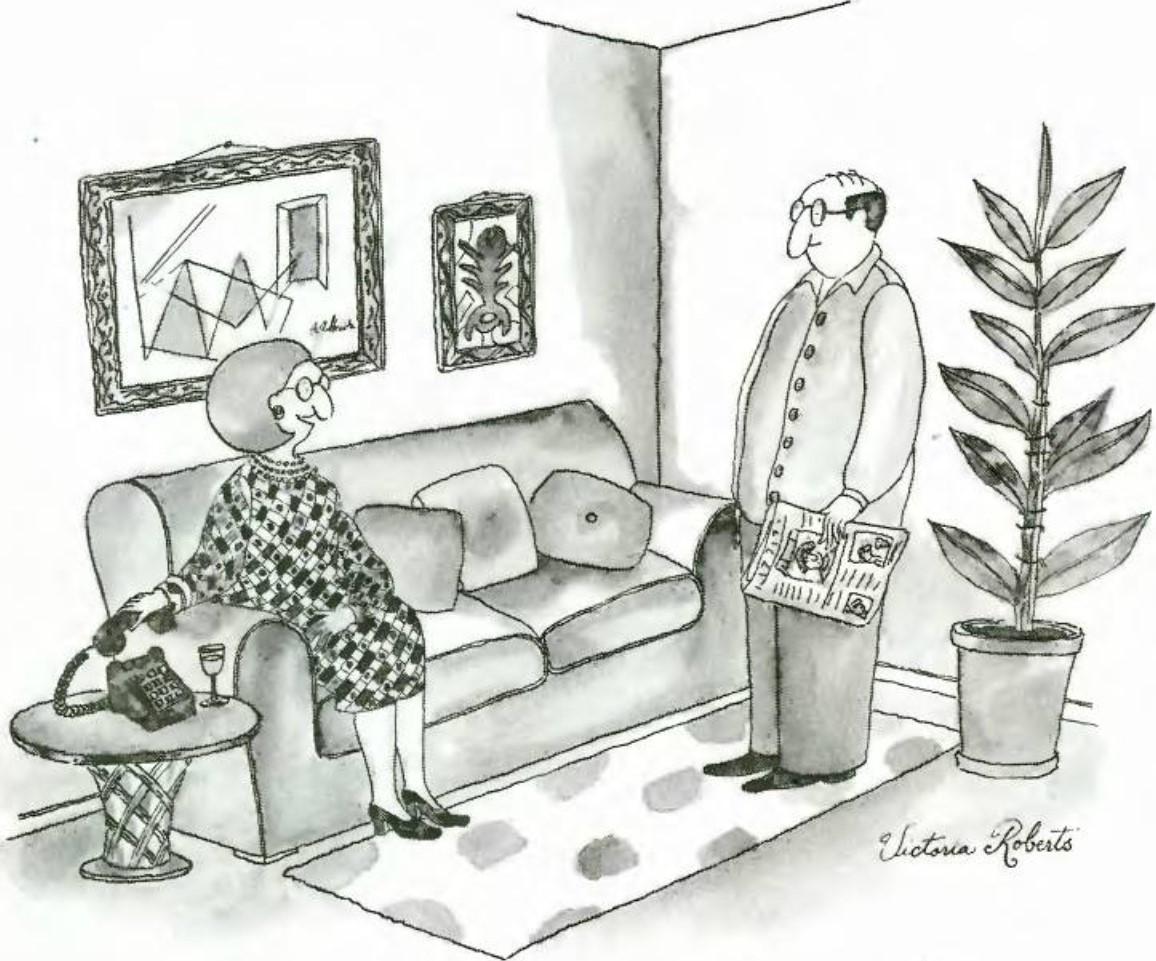
Cutting seismic trails is the hardest physical work in the exploration process, and the Company usually hires Indians to do it. Like many of the younger Huao men, Enqueri had once worked on a seismic crew, he had, in fact, worked on a crew that had explored Block 16. “I needed money,” he told me. “When we are sick, the evangelicos take us to their hospital. They make us pay, and once when I was gone on a trip my sister went to the hospital.” When Enqueri got home, he learned that he owed the hospital the equivalent of about six months’ pay at the prevailing national minimum wage, or about a hundred and eighty’ dollars. He went to work for the Company. “I had a ninety-day contract,” he said. “I worked from six in the morning until six at night, cutting the forest. I worked seven days a week. The Company gave us a machete and boots, and the helicopter would drop beans and rice. After work, we cut a clearing and put up a tarp. 1 worked with other Huaorani; we all slept together. There was a lot of malaria, and someone was always being hurt—cutting off a finger or getting chopped by a machete or axe. But if you didn’t work you didn’t get paid. When we asked for better treatment, the Company said we didn’t deserve it, because we were uncivilized.”
WE spent most of a day weaving in and out of Block 16. Eventually, we arrived at a muddy river, and Enqueri announced that the trail he’d been following had ended.
“What does that mean?” I asked.
“It means we are lost,” he said.
“And what does that mean?”
“It means we might die.”
The Huaorani pride themselves on being able to travel as long as ten days without food, and since we left Quemperi we had eaten almost nothing. Foolishly, we had brought no hunting weapons, and after our long trek I was dizzy with hunger. I was so weak, in fact, that a few minutes later, when a furious storm broke oh us, I went into hypothermia. I shook uncontrollably with cold. Enqueri wrapped his arms around me until the storm passed and I had warmed up enough to sit still. Then, with his machete, he chopped down a balsa tree, split it into logs, and built a raft, tying the logs with vine. We put the raft in the river, and for the next two days we drifted at about a mile an hour. We hoped that the river would drain into the Yasuni, but it was just as likely to run southeast into Peru, through territory uninhabited even by the Huaorani, and in that case we would not find help for weeks. My hunger had become physically painful—my stomach felt as if it were being ripped open from the inside out—and I was certain 1 wouldn’t live that long.
Late in the afternoon on our second day adrift, I heard the far-off sound of a branch snapping; only when it was followed by the fuzzy’ but unmistakable hum of an outboard motor did I understand that it was a gunshot, and that we were being rescued. As Enqueri had said, you can’t hide anything from the Huaorani. Our hero was a grinning young man named Araba, the leader of a Yasuni clan and an old friend of Enqueri’s. Assisted by three whooping clansmen, he lifted us into a long canoe piled high with boar and monkey and yucca and bananas. I boarded cautiously, not so much from fatigue— though that was one reason—as from wit, doubting the reality of each moment.
We ate pig like pigs, and for the next few day’s Araba ferried us up and down the Yasuni to visit with clans. Then he took us to his community—Garzacocha, near Yasuni National Park. According to Enqueri’s census, there are a hundred and forty-one Huaorani living in or around Block 16, or roughly a tenth of the total Huao population. All along the Yasuni River, we met Huaorani who described, in detail, a spill on the river from an exploratory well. The spill probably occurred in 1989. (It’s hard to tell exactly, because the Huaorani living along the upper Yasuni are the area’s least acculturated, and have no concept of ccrwode weeks, months, or years.) They had become sick, and rashes had covered their skin; dead fish were floating in the river, and their yucca gardens had died. The Company, they said, ignored the spill. (A Conoco spokesman in Ecuador subsequently denied that the spill had occurred.)
As we canoed downriver toward the Napo (sunk to the gunwales with Huaorani along for the ride), we entered Yasuni National Park, which the Huaorani consider their land, and which they depend upon for basic resources. We passed a sign prohibiting hunting, fishing, logging, and colonization in the park. There was a guardhouse next to the sign, and it bore, in large, bold letters, the logo of the Nature Conservancy’. (The United States Agency for International Development has selected the Nature Conservancy’, Wildlife Conservation International, and CARE to administer a fifteen-million-dollar program of park management, tourism, and “sustainable resource” extraction in Yasuni and two other ecological reserves.) Though it was midday and the height of the tourist season, the guardhouse was empty. “The guard is on vacation,” Araba said. “He doesn’t come here very often.” Did Araba recognize the name of the group? ‘Yes,” he said. “It’s part of the Company.” After we beached the canoe, the Huaorani broke into the guardhouse, ate all the food they could find, drank a bottle of rum, and threw their garbage in the river. Later, they walked around the exterior, ripping at the siding lumber to see if any of it would be worth taking home.
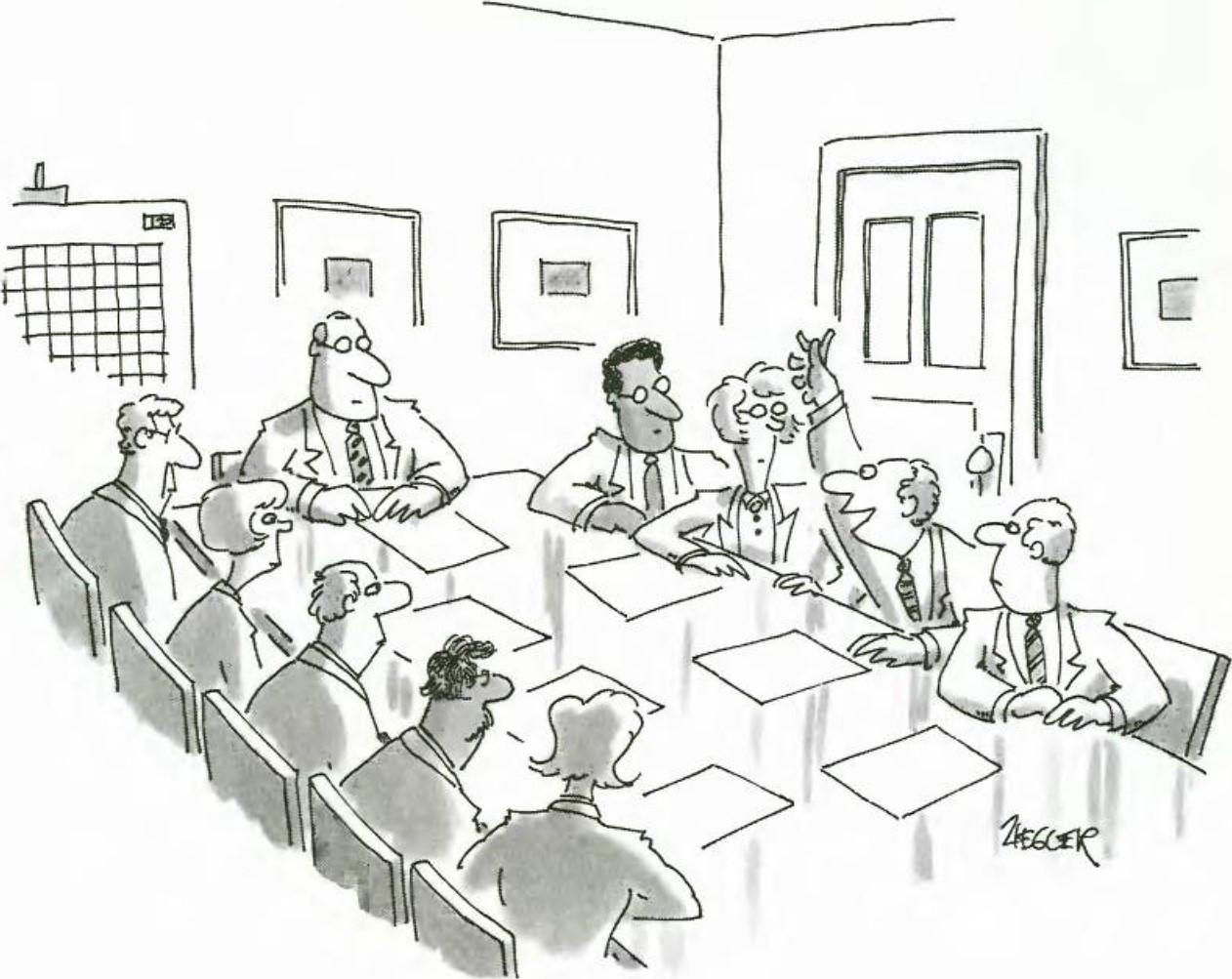
ONE night during our return voyage to Coca, we made camp at an abandoned chacra, a Quichua garden, on the north bank of the Napo. A Quichua man spotted our fire and invited us to his home, explaining that the chacrds owner had died of malaria, and that his ghost still haunted the land. “And y’ou are Huaorani,” he said nervously, shining his flashlight on Enqueri and Araba. They said nothing. You used to kill.” Turning .to me, he said, “One day when I was a child, the Huaorani came with their spears and killed everyone in myr family”—the men, the women, even the children. There was blood everywhere. It was a slaughter. I hid in a hole, and they didn’t find me. I was the only one who survived.” He turned back to Enqueri. “But now you’re civilized,” he said. He reached out and patted Enqueri lightly on the arm, as if he were an apparition. You’re civilized, aren’t you?”
When, after a month in the forest, Enqueri and I finally reached Coca, we found the entrance to the Capuchin mission blocked by’ a military’ patrol. The mission school had been requisitioned by the military so that its representatives, those of Conoco and Petroecuador, and Valerio Grefa could meet with Nanto and Moi to discuss Robert Kennedy’s proposal, which was being referred to as the Rio Napo Foundation. The Capuchins, who have consistently tried to help the Huaorani, had refused to participate.
That night, I had dinner with Moi. What was the meeting about?
“The Company wants to know how much we will take for our land,” he said. “We said we would like enough to buy a home for the next five thousand years.”
The meeting ended in a stalemate, and a few weeks later Valerio Grefa approached Nanto and Moi one last time. The Huaorani turned him down cold. Within days, Conoco announced that it was pulling out of the Oriente and selling its share of the concession to its partner Maxus Energy, which is based in Dallas. Maxus Energy’ used to be the Diamond Shamrock Corporation, which dumped so much dioxin into New Jersey’s Passaic River that in 1983 it began one of the most expensive cleanups in the state’s histoiy. It’s still going on.
time went on, I grew skilled at 11 sneaking into the Huao territory, but the easiest entry I ever made was a matter of dumb luck. I flew in from the town of Shell. Perched in the Andean foothills seventy miles from the western edge of the territory, Shell was founded by Royal Dutch/Shell in the nineteen- forties, when both the Company and the California-based Mission Aviation Fellowship began their forays into the Huao lands. The oil company is long gone, but the missionaries were fruitful and multiplied, and now it is from the Shell airport that most of the Oriente’s small-plane traffic originates. Huaorani are always lurking around the airport. Alas de Socorro (“Wings of Help”), a Latin- American affiliate of the M.A.F., charges them a discount rate for their flights. For the Huaorani, “discount,” like most financial concepts, is illusory, and some of them have run up accounts that their grandchildren will be paying off. Still, they invariably leave the territory when there’s an empty seat to be had on an outbound Alas flight. It’s too much fun. Later, they collect in Shell waiting for a ride home, or to anywhere else on earth.
When I walked into the Alas hangar, Huaorani were climbing over the desk and laughing at the pilots and poking into bags and snatching the sunglasses off the red-eyed dispatcher, a white man who looked as if he’d dropped in from Kansas. Rain was blasting the hangar roof like buckshot, and the radio was screeching, and planes were roaring down the runway one after another. As in almost every collision between cowode and Huaorani, the chaos was colossal. It was so colossal, in fact, that the harried dispatcher mistook me for a Christian. He hustled me out the door toward a six- seater bound right then for Tonampare. “Praise the Lord!” he said, waving me aboard.
The cleft-chinned young pilot rested his hand on the steering shaft and bowed his head. “O Lord,” he prayed, “guide me in my decisions.” Then he taxied through fog and mist and lifted us through gray into a sky of bright blue. Bouncing like a hobby horse, we banked east. Below us, the clouds thinned to tall plumes rising like smoke, and we thrummed over shaved red earth and waxy green coffee plantations. As Shell faded away, a few trees became many trees, then a vast green carpet of trees stretching to infinity.
MAYBE THERE’S NO GOING BACK
Used to be he was my heart’s desire. His forthright gaze, his expert hands:
I’d lie on the couch with my eyes closed just thinking about it. Never about the fact that everything changes, that even this, my best passion, would not be immune.
No, I would bask on in an
eternal daydream of the hands finding me, the gaze like a winding stair coaxing me down...
Until I caught a glimpse
of something in the mirror silly girl in her lingerie, dancing with the furniture— a hot little bundle, flush with
cliches. Into that pair
of too-bright eyes 1 looked
and saw myself. And something else: he would never look that way.
—Deborah Garrison
We picked up the twisty, coffee-and- cream line of the Curaray River—the same line that Nate Saint had followed thirty-five years earlier. Nate, physically disqualified from flying for the Air Force, had elected to fly for the Lord, and he opened up the Huao territory with a clever, and dangerous, technique called the “bucket drop,” hand-lowering a bucket of goodies into the green hell below so precisely, and so steadily, that the Huaorani could loot it: contact.
We followed the Curaray for half an hour, until a patch of bare ground opened like a dun wound in green skin and we landed skidding on mud. This strip has made Tonampare, a shantytown of tin- roofed shacks, the principal port of entry for cowode riches, and it is where the Huaorani have settled in the largest numbers. In the middle of the village is a radio transceiver, strapped onto a tall tree stump and encased in a crude openwalled wooden box that is surrounded by wire mesh, so the Huaorani can’t steal it. It’s powered by a solar panel mounted high in a nearby tree, and, except when a local condor takes up an extended stay on the panel and decommissions the system, the radio squawks all day long. Each day starts with a Bible story.
Next to the radio is a tiny porcelain crapper tucked into a tiny shed. The Huaorani never use it. The only other flush toilet in the entire twenty-six hundred square miles of the territory is about twenty feet away, hidden inside a mesh- enclosed wooden house that looks as if it could have been lifted directly from the Pennsylvania farmlands that gave birth to its inhabitant, Rachel Saint. The radio, of course, is Rachel’s work, as are the toilets, and a chapel next to her house, and a small bronze plaque beside the chapel. The plaque commemorates her brother, who was killed on the banks of the Curaray, within shouting distance of the only home Rachel Saint has known for the last fifteen years.
Though I was staying within a stone’s throw of Rachel’s house, I was in Tonampare three days before I saw her. I’d come to find Enqueri, but he wasn’t there. His friend Salomon met me at the plane and said that Enqueri had taken off down the Curaray, in a canoe, on a wedding voyage. His bride-to-be was thirteen years old. It was, Salomon said, En- queri’s fifth attempt at marriage.
Salomon let me sleep on the floor of his shack, which had all the ambience of a henhouse, including hens. It was across the clearing from Rachel’s place. Every day, I heard her voice ringing out over the airwaves, and every day she sent me a note via a Huao runner. One note accompanied a chunk of venison: “The Aucas killed this for you. I’m sorry you’ll have to eat it their way. I prefer it fried.” “Their way” meant boiled.
Finally, late one misty afternoon, I looked across and saw an immense, and immensely white, figure staring fixedly in my direction. Rachel Saint is a tall woman. She is taller than any Huaorani, stooped not at all by her seventy-nine years, and is not only tall but wide. Her size is surely an advantage in a culture that so values physical prowess, and she is made larger still by the soft lines of the pastel blouses and skirts that she favors. Her white hair was pulled back in a tight bun, and she peered from behind glasses with eyes that seemed as pale blue as ice. To the Huaorani, certainly, they are every bit as rare. They betrayed no emotion.
Our eyes met, briefly. Then she turned slowly, and slowly climbed the steps back into her house and shut the door. I went over and knocked.
“Would you like some tapioca pudding?” she asked.
RACHEL Saint came to Ecuador in 1955. She was “saved” at fifteen, went to Bible college, and then spent twelve years working with alcoholics in New Jersey, and five more translating the Word for Piro and Shapra Indians in Peru. She was forty-two years old when she took up her true calling, among the Aucas, working with a runaway Huao woman named Dayuma, whom she discovered “living like a slave” at a plantation in the Oriente. Most of Dayuma’s clan had been slaughtered by other Huaorani, and the two women found a bond in their grief. Dayuma taught Rachel Huaorani; Rachel taught Dayuma about the Lord. In 1957, she brought Dayuma to the United States. They went onstage with Billy Graham; they appeared on “This Is Your Life”; they raised gobs of money. By the time they returned to Ecuador, Rachel was the most famous missionary in the world.
The Mission Aviation Fellowship, meanwhile, had continued its forays into the Huao homeland, and in October of 1958 Rachel and Dayuma went in on foot, hacking their way through the forest for days until they found what was left of Dayuma’s clan. Rachel became the first missionary to sleep in the territory and live to tell about it. She and Dayuma established a settlement, and with radios and airplanes Rachel conjured machetes and shirts and pants and candy and rice. Lured by these riches, Huao clans came calling. Dayuma persuaded them to give up their nomadic ways; Rachel delivered the message of El Senor.
Rachel became Dayuma’s clan sister: Nemo, she was called, the Huaorani word for star. They built their homes side by side, and to the crnuode world Rachel presented Dayuma as the leader of the Huaorani. The Company showed them where it wanted to explore for oil; Rachel and Dayuma moved the clans out and brought them into the tiny “protectorate” they had persuaded the government to create, in 1969. Desperate to colonize the Oriente as rapidly as possible, the government put the Summer Institute of Linguistics in charge of Huao health and education, and Rachel bent herself to her contracted task of making the Aucas “usefid citizens.”
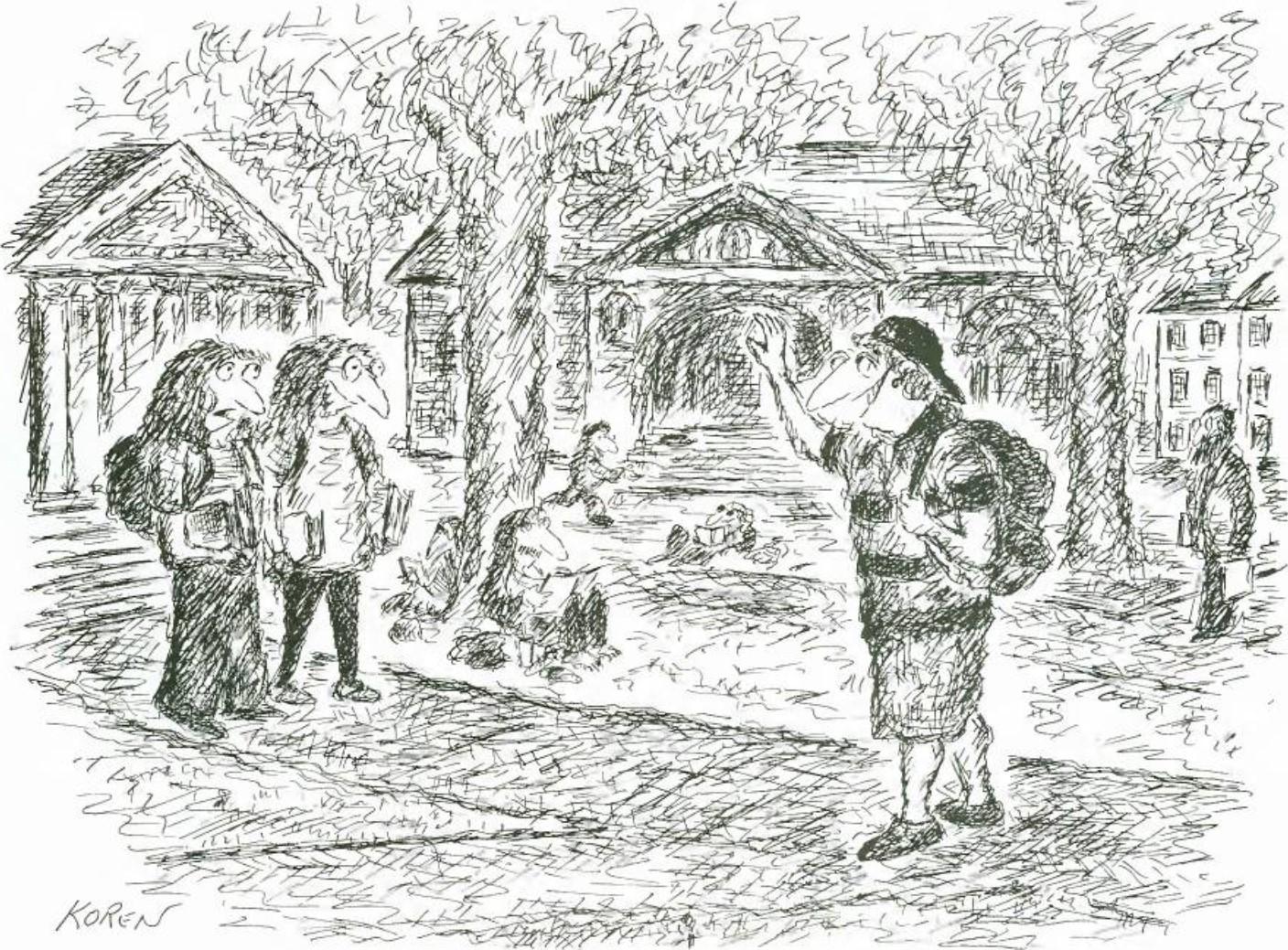
Things began to unravel in 1973, when the S.I.L. sent James Yost, the Christian anthropologist, to study the Huaorani. He came away dismayed. Rachel Saint, he said, had tried to turn the culture upside down: she had tried to convert it into a matriarchy and install Dayuma as its queen. (To this day, Rachel Saint refers to the protectorate as “Dayuma’s land.”) The Institute asked Rachel to leave the Huaorani; instead, she left the S.I.L. (In 1981, the government outlawed the S.I.L. itself.) Rachel left the territoiy in 1979, but she returned within two years, with ten dollars to her name and the backing only of a small church in Oklahoma. She was sixtyseven. Although she keeps an apartment in Quito, and goes there every few months, she has never really left the Huaorani again. “If you took Rachel out of the territory, it would kill her,” one of her fellow-missionaries told me. “She has no husband and no children. The Aucas are her family. She’s so tied to them that she’s”—and here he pounded his fists together—“ ungovernable?
Inside Rachel’s house are a radio transceiver, a kitchen sink and counter, dishes drying in a rack, a propane stove. A solar panel provides electricity. There is no refrigerator. “The law is, you can ask a relative for everything and the relative has to give it to you,” she told me, speaking slowly. “If I had a refrigerator, I’d just have to keep it filled for Dayuma.” A small bookcase holds copies of the Bible, wrapped in plastic against the . humidity, and five copies of a book about her in French. A blowgun and a fishnet hang on /] one wall; on another are aging black-and-white photographs of the Huaorani. She waved me toward a rocking chair and brought pudding, then collapsed into a hammock slung across the middle of the house and stretched out her long, pale legs, which were covered with insect bites. Scratching at the bites, she apologized for seeming tired: she had spent the last twelve hours in a malarial fever. Around her throat she wore a necklace with a single jaguar tooth. The roundness of the tooth, she said, indicated that it came from an old cat. “It was so old it couldn’t kill anymore,” she said. “Just like me.”
For some reason that probably had to do with the sudden outbreak of incurable diseases brought in by the cowode and with the Huao custom of avenging all deaths, there was a wave of intratribal killing in the middle of this century, and that was what had driven Dayuma to flight. When she and Rachel returned to the territory, twelve years later, only forty of her clan’s two hundred members were still alive. “They were committing ethnic suicide,” Rachel told me. “When a child died, they’d go to their witch doctors to find out who to blame, and there would be reprisal killings. They stopped the killings when we showed them the way of peace. So when an anthropologist accuses me of destroying the culture—well, if I told you how mad that made me, you’d have to write it on asbestos paper. Destroying the culture? I’m the one who saved it.”
She had been told by the Huaorani— “by my sources on the inside,” as she likes to put it—that I’d been to see Quemperi. “You were lucky to get out alive,” she said. “You go there at the wrong time, your life isn’t worth a plugged nickel. The only Auca you can trust is a Christian Auca. The ones over on that Catholic side are all savages. Pure savages. I can’t think of any other word for people who kill their own kind.” She added,“Of course, you can’t help but like them. They’re the most charming killers there ever was.”
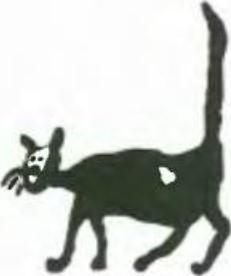
Several Huaorani were hovering at the v foot of the steps outside her B house, talking quietly among I themselves. A man shouted at us from what was now the inky darkness of the forest night; I recognized the terms “Auca” and “Huaorani.” Rachel * shouted back to him in his own tongue. “He’s saying they’re Huaorani, not Aucas,” she said. “But they’re Aucas. Always have been. I told him he should be proud of that—there’s a soccer team in Quito named the Aucas.” She got up and tossed a bar of soap in the direction of the voice. “That Huaorani ”—she arched her eyebrows—“wants to wash his Auca clothes.”
I had expected someone stem and reproving, but Rachel Saint seemed kind— kind and lonely and touched with regret. It seemed painfully obvious that by any measure—emotional, physical, material—her brand of fundamentalist Christianity and her remaking of the culture in her own image have been a net loss for the Huaorani. Tonampare is a slum. So many Huaorani have crowded into it that there is virtually no hunting. They are visibly less healthy than those who live in more traditional ways. They are dependent on goods brought in from outside, and many of them have become wage slaves to a culture they can never hope to be truly a part of—to a culture that, in fact, considers them little more than animals. And it was Rachel Saint who did so much to help open up the Via Auca.
It may have been a mistake to trust the Oil, she now concedes. (She uses “the Oil” the way the Huaorani use “the Company.”) The Oil flew Dayuma into Shell to sign a contract to work the Auca lands, but “they lied to her,” Rachel Saint explained. “They told her they’d crossed out the parts giving them permission to build roads, but they hadn’t really, and she can’t read Spanish.” The Oil brought alcohol and prostitution, which made the Huaorani “demon-possessed”; worse, it brought roads and colonists and epidemics.
Maxus, however, is a different story. Like Rachel, William Hutton, the general manager of Maxus’s Ecuadorian operations, is an evangelical Christian, and he had already provided funding for a secondary’ school in Tonampare; Rachel was coordinating its construction and staffing with the Christian mission in Quito. “Bill Hutton’s a good Christian man,” she said. “And he says he’s an environmentalist, too.”
To her critics, the tone of Rachel Saint’s work was set bv one of the first bands of “wild Aucas” she brought into her protectorate. Almost immediately, all hundred and four contracted polio. Sixteen died; sixteen were crippled. “You have to ask how many more would have been killed if we hadn’t brought them here,” she says now. “How can you let your brother die without giving him a chance at peace? The tribal dictates—you might as well call them the Devil’s dictates. When you put aside the Ten Commandments, you have pure chaos, and that’s what we had here with the Aucas. You had husbands manying two sisters. You had brothers sleeping with their brothers’ wives. Sometimes a man would many a mother and a daughter. You had your free-love fiestas, where anybody slept with anybody. Pretty soon, a father has kids in five places. A boy grows up, he wants to many a girl, and he finds out she’s his sister! If you don’t think that’s chaos, you haven’t read your Old Testament.”
Rachel is still determined to straighten out one of the hotter hotbeds of Auca chaos—the Tagaeri. She said she hopes to reach them before anyone else, particularly the Capuchins; the Maxus project should greatly increase her chances of access. Alejandro Labaca had had his chance, and he had blown it: “I think he wanted to be a martyr.” She ridiculed the Capuchin philosophy of eschewing religious conversion for political activism (“They say they’re trying to save the land for the Indians. I say save the Indians for the land”), and she chose to ignore the fact that Labaca’s death had led to the sort of victory that had always eluded her: temporarily, at least, the government suspended oil development in the Tagaeri land. What seemed to bother her most about the Capuchins, though, was a much reproduced photograph of a young nun, Sister Ines, who was killed with Labaca. In the photograph, Ines is cooking soup for several Huaorani. “The Catholics claim that the Aucas liked Ines, that they were friendly with her,” Rachel said. “But I happen to know that’s not true.” Although no one else in a hundred miles spoke English, she leaned over and whispered in my ear: “My sources on the inside say theypeed\n her soup pot.”
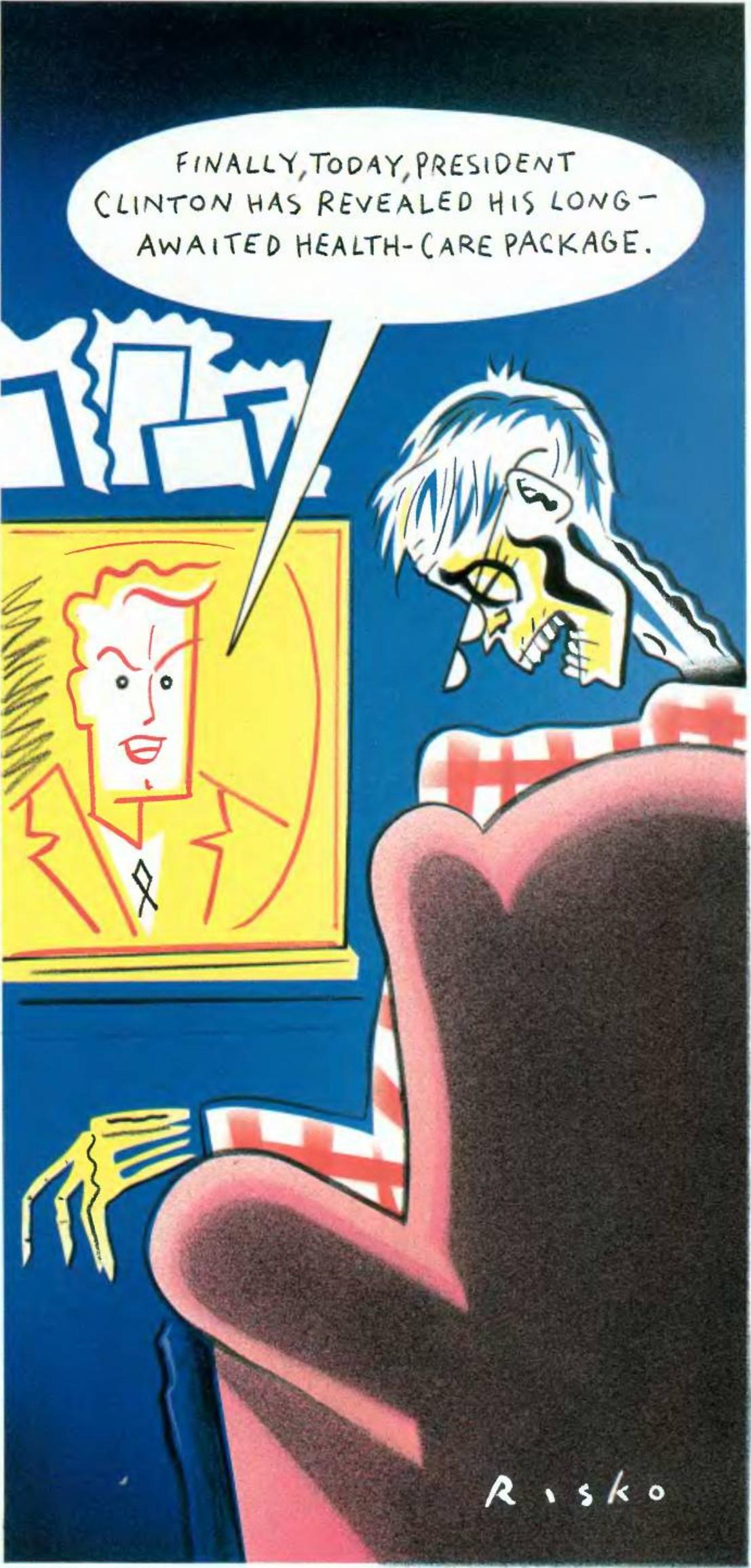
On Sunday, at Rachel’s invitation, I went to services. Of the three hundred-odd Huaorani living in Tonampare, eleven had made it to chapel. One man was in a wheelchair, and another had a polio-crippled leg; a third was on crutches. It’s fair to say that four decades of tilling the Huao field has yielded a slim crop. The I luaorani are no more Christians than they are Jews, or Muslims, or Buddhists; Rachel Saint’s relationship with them is one not of shared faith but of power and reward. For years, she controlled Huao dealings with the government and the Company, and, to a great extent, she continues to control the radio, the air traffic, and the entry of outside goods and services, including what few health workers and medical supplies find their way to Tonampare. (Later, I asked one of the worshippers what Rachel did, and he said, “She asks God for things.” ) Christian missionaries still control the secondary school that Maxus has built. CONFENIAE accused the S.I.L. of using its schools to eradicate traditional indigenous culture, but Rachel has not backed down. “I have warned the people to stay away from such dangerous organizations,” she says. “They’re Communists.”
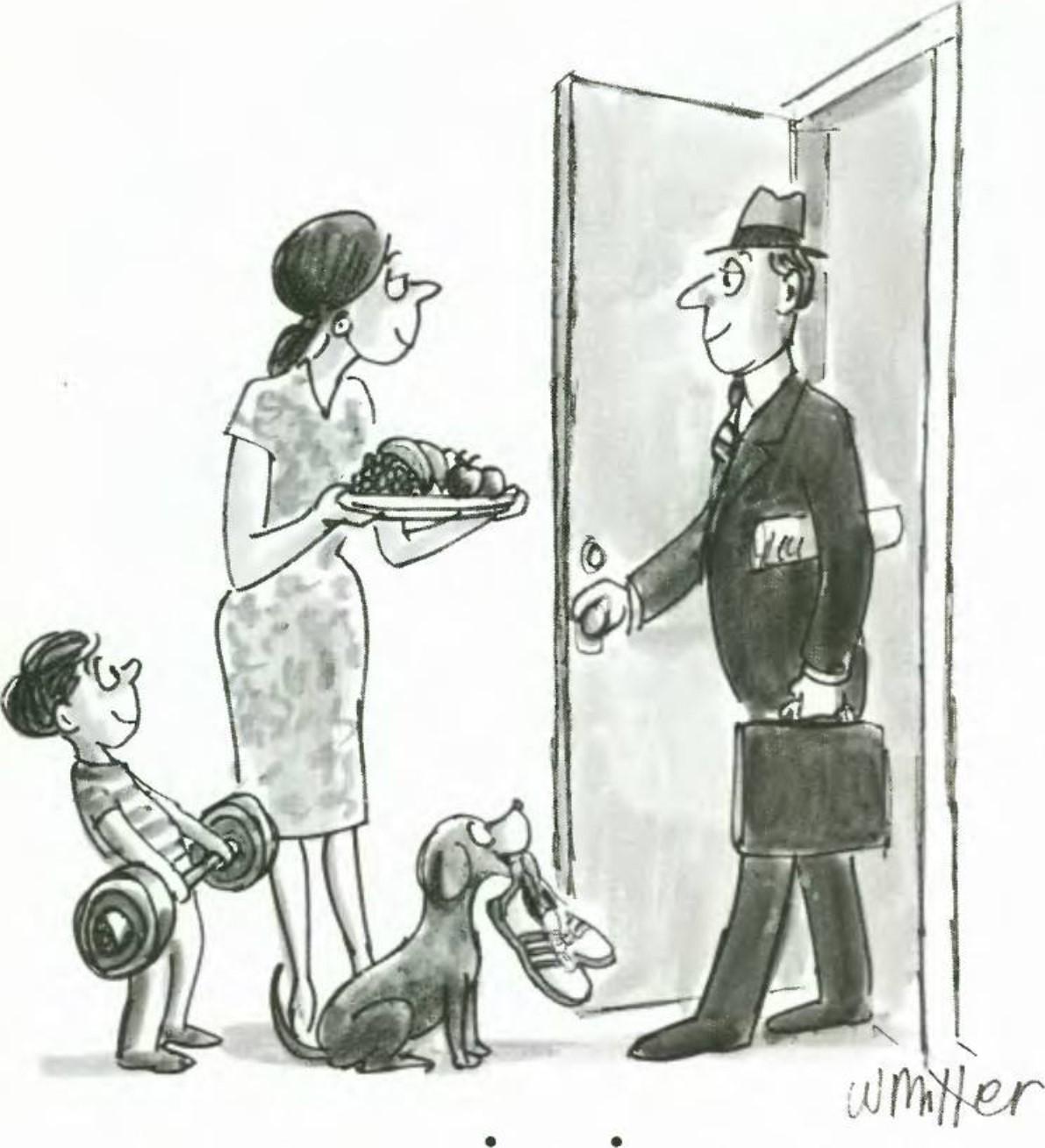
The impression that Rachel Saint is Tonampare’s Big Nurse was reinforced by the looks and manner of the young man who stood at the front of the chapel preaching the Gospel. He spoke mainly in Huaorani, but he slipped into Spanish to deliver admonitions against drinking and dancing. Rachel sat to one side, impassive, but the man was clearly nervous, stuttering from time to time and shooting her sidelong glances. He was an oddlooking Huaorani. It wasn’t simply that he wore dentures. No, what was strange was that he wore glasses: I’d never seen them on a Huaorani.
Suddenly, I realized that the man I was watching was Enqueri.
“Credit!” he told me later, gleefully, by way of explanation. He had gone to the Christian hospital in Shell for the choppers and specs. “Now maybe Enqueri will get a woman!” he said. He grinned broadly, and held the grin. What about his marriage? That hadn’t worked out— on the second day of the wedding voyage he’d accidentally tipped the canoe and dumped his young fiancee and all his shotgun shells. He’d left her there on the bank, camping with her brothers.
OVER time, I began to appreciate the enormous odds that the Huaorani have overcome to start ONHAE, and to make it function. There is Rachel Saint, for one; then, there is the daunting prospect of holding such a farflung organiza- tion together without benefit of telephones, radio, mail, efficient transportation, or funds. During a week when Enqueri was down with malaria, I joined the rest of the ONHAE braintrust— Nanto, Moi, and Amo—on a journey to Moi’s village, Quehueriono, for an asambka.
Quehueriono lies at the extreme opposite end of the territory from Cononaco and Garzacocha, the settlements I had visited with Enqueri. Situated at the territory’s western edge, Quehueriono serves as a sentinel against the influx of the Quichua, from the north and west, and the Shuar, down the Via Auca, and the Company, which is pressing in on all sides. From the Via Auca, it takes about a day to reach Quehueriono by motorized canoe. The village is hidden on the upper Shiripuno River, in the undulating terrain where the Amazon meets the Andes, and the journey is breathtaking: volcanic peaks bursting above mist-shrouded rivers. It is in this region, where two distinct climatic zones join, that the Oriente is at its richest. Thirty million years ago, the Oriente was an embayment of the Pacific Ocean. Four and a half million years ago, the Andes thrust up from the earth, creating finely subdivided habitats—deep valleys separated by high ridges, with microclimates that changed radically over short distances. Consequently, plants, and the insects and birds and other creatures that evolved with them, were isolated. This situation encouraged such intense speciation that today, in its endemism—the presence of species that exist nowhere else—the Oriente is probably the richest place in the world. (At a single research station not far from Quehueriono, observers have recorded four hundred and ninety species of birds, or almost two- thirds as many as are found in the continental United States.) Each bend in the river reveals rolling hills, and near Quehueriono itself these are steep, a prelude to the great mountains. There is a sense of seclusion even within Quehueriono—one home is rarely visible from another—and it may be the prettiest of all the Huao settlements, which is saying something. The river runs clear green over rock, and its water is sweet and translucent.
It is here in Quehueriono that the Huaorani met in 1990 to form their federation. “I worked for the Company for four years, cutting line,” Moi said. “I met some Quichua on the lines, and got to be friends with them, and they took me to meet a Quichua man named Leonardo Viteri. He taught me about organizing; he made me see that I was helping the Company to destroy my home. That was when I got the idea to start ONHAE.” Moi, in fact, had invited to the asamblea the leaders of three Quichua villages near the Via Auca that were affected by oil development, and they had responded with enthusiasm. “No one is going to help us,” one of them said, “so we have to get together and help ourselves.”
At the end of the day’s canoe journey—during which Moi would rise to his feet every hour or so and broadcast into the forest wall, “Come to the asamblea tomorrow! Lots of chicha! ”—we arrived in Quehueriono to find the settlement jammed with some three hundred Huaorani, from as far away as Garza- cocha, a journey of at least two weeks. ONHAE asambleas are held every few months. This one met for three days, from dawn to dark, in a great hall in the middle of the village; the meetings continued until everyone who wished to speak had spoken.
Nanto and Moi took turns presiding. As vice-president, Moi had the job of moving the agenda along. Nanto was the orator. “The Huaorani live well and will continue to live well,” he said, to open the meeting, “because we arc the bravest people in the Amazon and we will defend our land.” Unlike Moi, he is a husband and father, and what matters to him above all else is a safe home and food to eat. Tall and strong, with high cheekbones and wide brown eyes, he would be considered handsome in almost any culture. Nanto had never struck me as a politician—he has no heart for posturing. But he’s a superior hunter, fisherman, and motorista (the outboard motor was only recently introduced to the Huaorani, but Nanto quickly became adept at using it), and in a culture that is still closely attuned to the often harsh life of the rain forest these skills command respect.
Resolutions, passed by majority vote during the asamblea, addressed education (the Huaorani want schools and a bilingual- education program), tourism (they’re against it, unless they control it), and health care (they will ask the government to fund a program to train their own people as health workers). The dominant topics, however, were colonization and the Company. “We are opposed to oil development, but we also know that it can’t be stopped,” Moi told me after one day’s talk had ended and the night’s dancing had begun. “What we want is a moratorium. We believe that ten years is reasonable. Right now, everything is happening too quickly. There is no control, and no one is watching out for the
Huaorani. We want the Company to stop, to make an inventory of the damage that has been done so far, and to come up with a serious plan to limit damage in the future. We think that’s fair.”
Meanwhile, colonization is advancing steadily from the Via Auca up the Shiripuno, almost entirely in the form of Shuar. Amo, despite the boldness of his gold-inlaid front tooth, was the most soft-spoken of the ONHAE officers—to hear him, I often had to stick my car within inches of his mouth—but he was also the one most vulnerable to the Shuar aggression. Because, as secretary, he had the job of walking among the villages to deliver messages, and of travelling to Coca with correspondence, he was constantly exposed to attack. “Whenever I walk out to the road from here, the Shuar threaten me,” he said. “They demand that we give them some of our territory. The older Huaorani don’t want to fight them, but Nanto and Moi and 1 and many of the other younger men do want to. They have to be stopped, now.”
Amo was interested, and pleased, to hear that the Sierra Club Legal Defense Fund had petitioned the Inter-American Commission on Human Rights (the human-rights section of the Organization of American States) to censure the Ecuadorian government for allowing oil exploration in Huaorani territory. The names meant nothing to him, but the petition cited the U.N. definition of cthnocidc, and he had no trouble understanding that: “It means the Company is going to kill us.” He was ready to move forward: “If they are our lawyers, we must invite them to come and meet us.”
Did he know what a lawyer was?
“Yes. It is someone who speaks for you when you cannot speak for yourself.”
Nanto and Moi decided that Amo would return with me to Coca, borrow a typewriter from the Capuchin mission, carry it into the territory on his back, and type an invitation to the Sierra Club Legal Defense Fund, which would be signed by the other officers. With luck, Amo would have time to squeeze in a visit to his village, to see his wife and their two-month-old baby girl. He would then travel to Quito, to my apartment there, because I was the only person ONHAE knew who could get the letter to the United States.
The next day, Amo led me out to the
Via Auca on foot. We walked for twelve hours, eating nothing until we made camp in a clearing near the Shiripuno bridge, where he produced a mound of rice wrapped in a banana leaf. He refused to take any himself. In the morning, we flagged down an oil truck, and in Coca we shared a coconut. I drew Amo a rough map of Quito, marking my apartment, and gave him the fare for the thirteen- hour bus ride. Then I bade him good luck.
I never made it to Quito. He got on the jitney that picks up Indians and colonists along the Via Auca. Nanto and another Huao, a man called Pancho, were inside the vehicle; Amo was riding on the roof, as he often did. One way or another, he fell off. Nanto and Pancho saw Amo drop from the roof, and shouted for the driver to stop; the driver slowed, Nanto and Pancho hit the ground on the fly, and the driver sped away. For two hours, Amo lay by the road unconscious but alive; suddenly, he sat up, vomited blood, said, “My head hurts,” and died. Four hours later, a pickup truck from the Capuchin mission arrived and took the body to Coca. There was no investigation, by either the military or the police. A doctor who later examined Amo’s body—but refused to do an autopsy, for fear the Huaorani would blame him for the death and exact revenge—told one of the Capuchin priests that Amo landed on his head with such force that a small stone was driven through his skull and lodged in his throat.
The Huaorani do not believe that Amo fell accidentally. Though Nanto says there is some possibility that Amo was hexed by a witch, he endorses the more widely held Huao belief that Amo was shot in the head by a Shuar colonist who was on the roof with him. “I heard the dead man”—Amo—“screaming,” Nanto said. “Then I heard a sound like a gunshot. When I looked out the window, he was flying off the roof. He wasn’t falling, trying to grab things as he went—he was flying.”
Babae and his clan live about an hour’s walk from the scene of the accident, and several of the clan members saw Amo’s body. “He had a round hole in the back of his head, and the hair around it was burned,” Babae’s wife said. “It was a small hole, like the hole a bullet makes in a boar, and you could see the place in his throat where something was trying to push through. How would a stone get all the way down there?”
Nanto said that he hadn’t insisted on an autopsy, because ONHAE had no money to pay for one; not until two weeks later, when he met with Judith Kimerling, did he understand that the police were obligated to make a complete investigation of the death. By then, however, Amo had been buried.
Until a new election could be held, Enqueri would assume Amo’s duties as secretary of ONHAE. He was scared and angry. The death, he pointed out, had occurred near the offices of the Shuar colonists’ association. “I believe that the Shuar had an arrangement with the bus driver,” he said. “It was an assassination. The Shuar had told the dead man they were going to kill him if he didn’t give them land. When I walked out of the territory to help bring his body back, the Shuar stopped me and said, We’re going to do to you what we did to the dead man.’ I told them they would have to kill all the Huaorani before they would get our land. 1 was alone, or I would have fought them right there.”
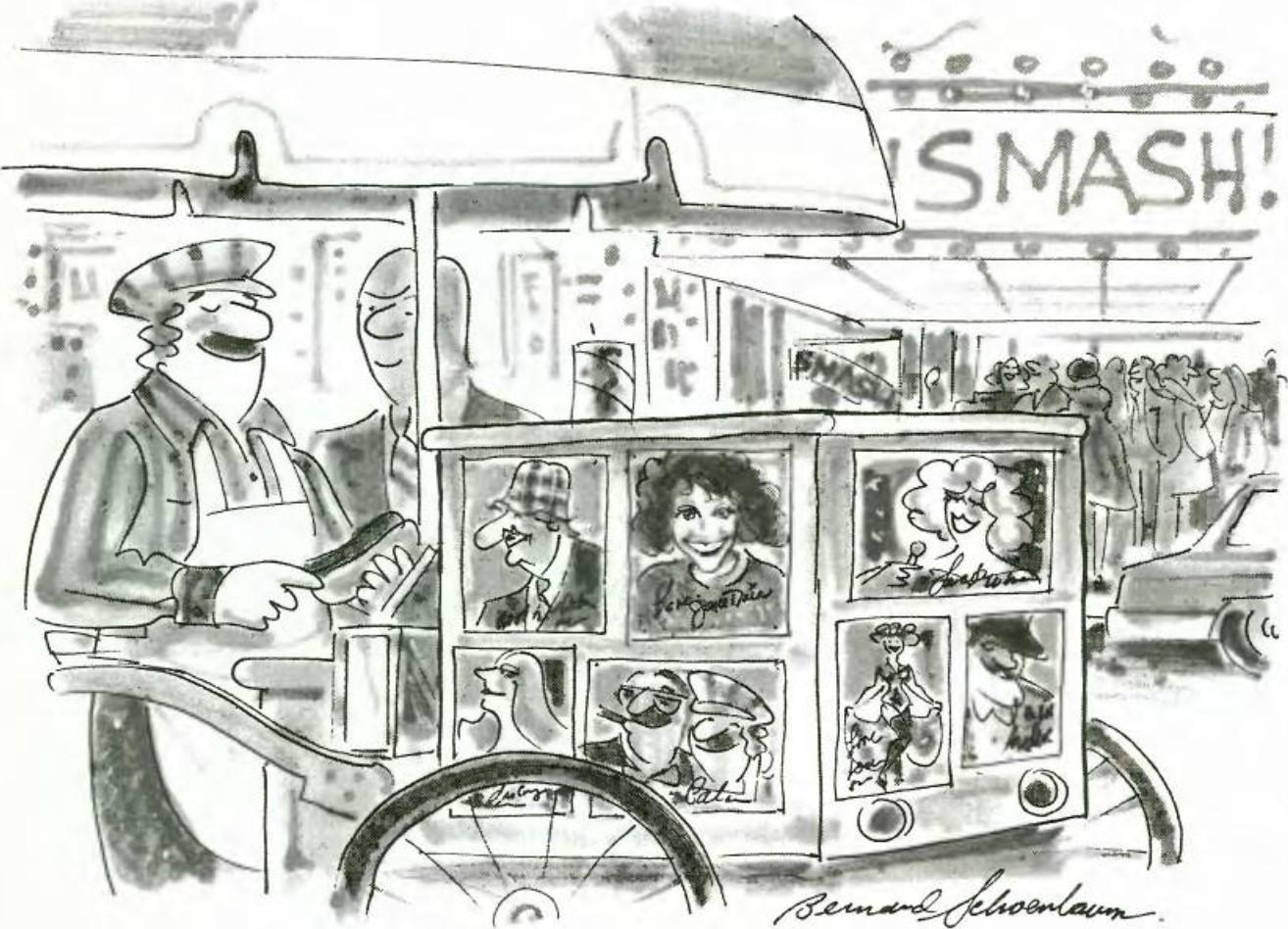
In May of last year, Nanto and Moi went to the Maxus offices in Quito.
Moi, having learned a thing or two, brought a tape recorder. With the tape recorder running, they told William Hutton, the general manager of Maxus’s Ecuadorian operations, that they wanted copies of the Block 16 management plan. They warned Hutton to keep Maxus away from the Huaorani, and said that they especially wanted to have nothing to do with a staff sociologist named Rossana Faieta, whose job it was to secure a contract with the
Huaorani. Hutton said, “O.K.”
According to Nanto, one week later, Rossana Faieta arranged to meet Nanto in Coca. She flew with him by helicopter to Quemperi’s pista, and there she tried to get him to persuade Quemperi to accept the road. Quemperi refused. In September, Faieta brought Nanto and two other Huaorani to Quito, sat them down in the Maxus offices, and got them to sign an agreement, written in Spanish, that read, in its entirety:
Today, the ninth of September, 1992, in the offices of Maxus, there was a meeting between representatives of the Huaorani— Nanto Huamoni, Yacata Yategue, Salomon Oname [sic], and Tigue Oname—in which they expressed the following points which were decided in a meeting of the Huaorani Congress:
1. They decided that Maxus maybegin to construct a road in the territory. The road shall be five to six metres wide.
2. They need Maxus’s support in providing equipment for the primary and secondary school.
3. Colonization controls which will be worked by the Huaorani.
4. Generator for the night school.
5. Payment for a machinist to cut wood.
6. Transportation: Gasoline and two out board motors.
7. Provision of medicine and health care programs.
8. They declare that they wish to make only one contract between tne Maxus Company and ONAHE [sic].
Today, September 9, we sign this act of the meeting, in agreement, with all the points mentioned.
The agreement was signed by all four Huaorani. Yacata and Tigue were from Garzacocha. When I met them, three months earlier, they had been adamantly opposed to the road, and they were, I was pretty certain, illiterate. On September 26th, Salomon Iquita told me that he hadn’t been at the meeting. “Nanto came to me with this piece of paper,” he said. “It was folded like this.” He folded a copy of the agreement so that only his name was showing. “He told me I had to sign my name, so I did. When he went to sleep, I stole it out of his pants. What does it say?”
While it was true that there had been a Huao congreso (at an asamblea the Fluaorani discuss issues among themselves; a congreso speaks formally to the world outside), and that oil issues had been discussed, the congreso had been held nine months earlier, and the resolution that had come out of it, and had been written down and signed by the
ONHAE officers and the dirigentes of the various villages, hardly approved what was essentially the sale of the Huao birthright for what amounted to beads and trinkets. Rather, the resolution stated, among other things:
We do not want the presence of the petroleum companies, because crude oil contaminates the rivers, the land and the environment, and destroys the health of the people. The Huaorani want no more advancement of oil development, because the roads are the first step in the invasion of colonists. We do not want the contamination, the noise, or the disruption of the oil companies.... We will apply our own law, the pain of death, and we are ready with arms to defend our territory against all invaders, because we are the bravest people in the Amazon.
When word of Nanto’s agreement reached Moi, he and Enqueri travelled the territory for two weeks, by foot and canoe, to organize another congreso. They visited each of the twenty-two Huao villages in the protectorate and sent word by canoe to the Yasuni I luaorani. Each clan sent a representative to the congreso, which was held in Nanto’s village of Tonampare. The Maxus agreement was unanimously rejected.
A few weeks later, Nanto, his wife and daughter, and Moi and Enqueri came to visit me in Quito. About midnight on a Saturday, a woman I’d never met showed up with an envelope full of cash and demanded to speak with Nanto. She seemed surprised to see me, and she wouldn’t tell me her name. The Huaorani were asleep; I said she would have to come back, and told her good night.
Enqueri, who had been awakened by the conversation, sneaked a peek through the door as the woman waited for the elevator. “That’s Rossana Faieta,” he said. “This has been going on for many months now. The Company is trying to break Nanto. Rossana sits on his head. She will meet with him only when she thinks he is alone—when Moi and I are not there—because when he is alone he is very weak, especially if he comes to Quito. His head gets so full that he cannot think. After a while, he will agree to anything.*’
In the morning, I put the coffee on, and as we sat around the kitchen table eating papaya and sipping gringo chicha Enqueri told Nanto and Moi what had happened. Nanto was feeding pieces of bread to his infant daughter, Rocillo. She had been coughing harshly, from deep in her lungs, all night long. Nanto looked sad and tired. Unlike Enqueri and Moi, he had a family to support, and his work as the president of ONHAE kept him on the road constantly. He had little time for hunting and working at home. If he was indeed taking bribes, it wasn’t hard to see why.
At first, though, 1 wondered why Nanto had given Rossana Faieta my address—surely he hadn’t thought he could keep his dealings with her secret. But the more I thought about it the less surprised I was. There is no absence of guile among the Huaorani, but until the arrival of the Company, when survival without the clan became, if not possible, at least conceivable, guile that benefitted only the individual was impractical. It had been a society in which nothing could be hidden. The Huaorani haven’t had much opportunity to hone skills that promote solitary action; if Nanto was corrupt, he just wasn’t very good at it.
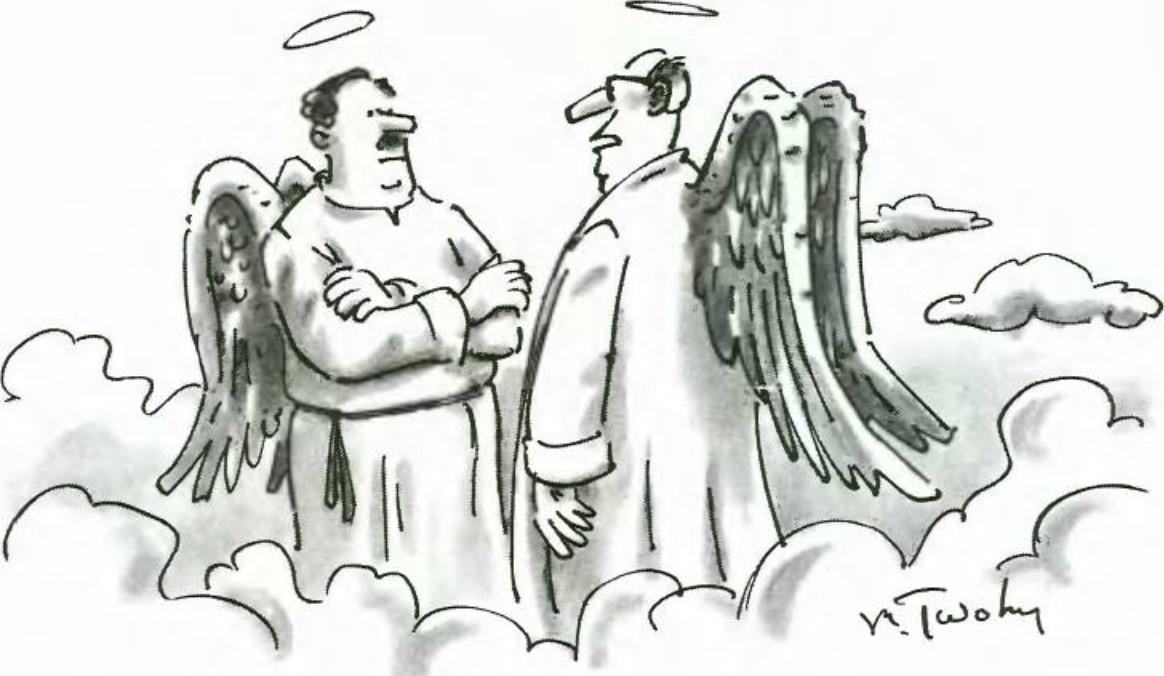
For his part, Nanto offered neither defense nor explanation of his behavior, and neither Moi nor Enqueri asked for any. Instead, Moi stood up behind Nanto and massaged his shoulders. “Nanto, Nanto,” he said after a while. “We must be strong, Nanto. How can we fight the Company if we take money from it?” To my ears, at least, his voice carried no blame. The three of them are as close as brothers, and, in any case, the idea that Nanto could have deceived Moi and Enqueri in any real way was ridiculous. As far as they were concerned, Nanto was a victim. Moi nodded toward a spear they had brought me as a gift. “If she comes again,” he said, “I will kill her.” He might have been kidding, but I honestly couldn’t tell.
ONE of the rights nominally guaranteed to Indians in Ecuador is to be shielded from contact with private petroleum interests. Manuel Navarro, who was the Petroecuador executive charged with overseeing the relationship between the Indians and the Company, told me that under Ecuadorian law foreign oil companies are prohibited from negotiating directly with the Indian groups, because such contact jeopardizes the Indians. (It is just this law, in fact, behind which such companies as Arco and Texaco hide when they’re accused of ignoring the Indians on whose land they’re drilling for oil.) I spoke with Navarro in his Quito office. That very day, he said, he had written a letter to Maxus, because he’d heard that Maxus had been dividing the Huaorani by creating “hateful differences” between various groups.
Then why did he permit Maxus to deal directly with the I luaorani?
Navarro smiled, then narrowed his eyes and squinted, as if delivering a lecture on the fundamentals of petroleum jurisprudence: Maxus doesn’t like that law, so it doesn’t apply to them. “They don’t have much confidence in us,” he explained.
Later, I called William Hutton, the general manager of Maxus in Ecuador, and told him about Rossana Faieta’s payment to Nanto. “We have a policy of not paying the Huaorani money,” he said. “But let me get back to you.” lie called in about an hour, and said, “Rossana said she wanted to reimburse Nanto for a trip he made to Quito to visit someone in a hospital. Sometimes we will cover their transportation expenses for emergencies.”
I suggested that a Saturday midnight was an odd time to be doing business.
“Look, I won’t say we’ve never paid any Huaorani any money, but to my knowledge we haven’t,” he said. “It’s not a good thing to do with relatively uneducated people.”
I asked him why, if he had agreed to keep Faieta away from the Huaorani, she was still on the job.
“I didn’t say I’d take her off the job,” he said.
I read to him from a transcript of Moi’s tape, in which it appeared that he agreed to do just that.
“That’s taken out of context,” he said.
I read him more of the transcript.
“Let me get back to you,” he said. He didn’t call again.
HUAO culture has no precedent for . speaking in the united voice required for political power. Traditionally, the clans are autonomous, and, even within the clans, loyalty beyond one’s immediate family is tenuous. To put the welfare of the nation above that of the family is a huge leap—and an area of vulnerability readily comprehended by the Company. Seiscom Delta, the company that performs most of the seismic testing, reportedly enters the Indian territories without informing the inhabitants, and without doing even the minimal paperwork required by the government. Last year, one of the Quichua federations staged a strike against Seiscom Delta, blocking all access roads; at about the same time, the Cofan kidnapped an entire seismic crew. Last October, Seiscom Delta started testing inside the Huao protectorate, within a mile of Tonampare, but two days later the Huaorani raided the camp and scared off the workers. The military escorted the workers back; the Huaorani raided the camp again. Petroecuador officials flew in to try to smooth things over. They spoke with Nanto. “What do you want?” one of the Petroecuador men asked, and his co-workers reached into the Company helicopter and hauled out bags of pots and pans and rice and candies. Torn between the political position of ONHAE (absolutely opposed to the Company) and the old loyalties of clan and family (what do you have to eat?), Nanto opted for the latter, accepting the gifts and distributing them in Tonampare.
Nanto’s decision meant that the Company would be back, with more things; and they would look for their oil; and, if they found it, one day the rivers in Rachel Saint’s protectorate—where eighty per cent of the Huaorani live, where the resources they depend on are already stretched precariously thin, and where the Huaorani have no choice but to stay, since there is nowhere for them to go—one day, surely, those rivers will run black with Amazon crude.
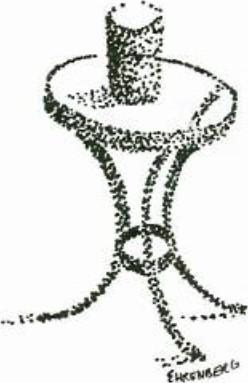
Maxus began the construction of its . road last November. In protest, Moi and Enqueri led two hundred Huao men, women, and children on a long trek, by foot, canoe, truck, and bus, from the deep Amazon to the high Andes— to Quito, where they laid siege to the Maxus offices. They made their camp in a park across the street from the Maxus high-rise. They demanded to speak with William Hutton; Hutton dispatched Rossana Faieta. When she reached the street, the Huaorani women assaulted her. The Huaorani held the camp for two weeks, until cold, sickness, and hunger drove them back to the forest.
Nanto participated in the protest, but by then his spirit was broken; in February, when ONHAE held new elections, he did not run. Nor did Moi, choosing instead to concentrate his energies on the defense—“with spears from all sides”—of remote Quehueriono, which so far remains beyond the reach of the Company. With Amo dead, the ONHAE mantle has come to rest on the thin shoulders of Condorito, Enqueri—with whom, last month, Maxus announced that it had signed an agreement.
Maxus has refused to release a copy of the agreement; when I called Hutton in Ecuador, he said that it would be “inappropriate.” It was an “involved” document, he said, and needed explanation. I asked him whether Enqueri had had the benefit of an independent adviser to help him analyze the contract. Indeed, he had, Hutton said—“the government.” He dismissed my suggestion that the government was compromised. “There’s no compromise at all. It’s a very7 one-sided agreement. The Huaorani arc receiving educational and other benefits from Maxus, and the only obligation they have is to let us come into their land.” Maxus, he said, is legally entitled to exploit the Huao land with or without Huao cooperation, but would like to be a good neighbor.
On September 7th, eleven days after the agreement was signed, Maxus spilled thirty-eight thousand gallons of raw crude in the Oriente. What was perhaps most remarkable about this spill— only the latest in a string of accidents, violations, and confrontations that have occurred since Maxus began building its road—is that it happened before Maxus had opened its first well. Somehow, in the course of building its own pipeline, Maxus managed to rupture a line operated by Occidental Petroleum.
Of this I am sure: what the Company believes Enqueri has agreed to and what Enqueri believes he has agreed to are two entirely different things. This belief was reinforced just a few weeks ago, when, through the mysterious and difficult channels such communications take, I (and others) received a public letter from Moi. It had been written two weeks after the Maxus contract was signed. Maxus, he said, had bribed Enqueri “with an outboard motor, lots of gas, a new set of teeth, and glory.” The contract had been kept secret until a few days before the signing, and even after the signing most Huaorani still did not know its contents, or what it meant for them. The tribal elders were “vehemently opposed” to the contract, and bitterly angry that it had been signed without benefit of legal counsel. “Several Maxus personnel have threatened to control the Huaorani with use of violence,” Moi wrote. “The last thing Maxus told me was that if we bother them there will always be a military presence in Huaorani territory.”
The Ecuadorian government has announced that it is accelerating oil development in the Oriente; it is opening new concessions throughout the Oriente, some in lands that the Huaorani have long considered theirs. (Petroecuador, in developing a field that will take advantage of the Maxus infrastructure, has reportedly dumped seven thousand gallons of raw crude in the Yasuni River.) By most estimates, the Oriente will be pumped dry in ten or fifteen years.
Robert Kennedy continues to argue that sticking with Conoco was the least bad of a number of bad alternatives. In August of last year, in the Washington Post, Kennedy chastised environmental groups that saw driving Conoco out of the Oriente as a victory. Oil development is inevitable, Kennedy argued, and is less damaging to the rain forest than mining, lumbering, or cattle ranching; Conoco could have been influenced by environmentalists, because it is vulnerable to public pressure, whereas a small, independent company like Maxus is not. Kennedy shrugs off the charge that his Rio Napo Foundation was a sellout of the Huaorani, and that it was stopped, in the end, not so much by American environmentalists as by the Huaorani themselves. He’s still mystified by the situation he faced. “I have no idea what happened, or what the internal”—that is, Indian— “politics were,” he told me. “There’s almost an anthropological question of whether they have the capacity to negotiate.” The Oriente’s Indians, he said, “are essentially inept at government.”
It would be easy to dismiss Kennedy’s arguments as disingenuous (he must know, for example, that oil development leads directly to mining, farming, and ranching, and that, even if environmentalists had been able to influence Conoco, there would have been no control over other oil companies, like Petroecuador, that would piggyback on the Conoco infrastructure), or as sour grapes, or as inexperience (after all, he spent only a short time in the Oriente). But that would miss the point. The point is that many of the people involved with environmental and human-rights work in the Oriente have succumbed to the same seductive logic as Kennedy and Jacob Scherr, because sitting in a corporate office negotiating a multimillion-dollar deal is far headier, and far more comfortable, than sleeping in the mud. Almost none of the groups that have taken up the cause of the Huaorani, or their land, have a relationship with the Huaorani that is anything more than tangential, and, frankly, it’s hard to fault them. Working with the Huaorani is a high-risk, low-reward proposition: travel to the territory is expensive, dangerous, and time-consuming (and, often, illegal); communication is nearly impossible; the cultural gulf is enormous; the Company is all-powerful; and the Huaorani themselves are utterly unpredictable.
Still, there are signs that the struggle isn’t over. Judith Kimerling has filed a suit against Texaco. The fragile alliance between Ecuador’s urban environmentalists and Amazonian Indians, which Kennedy and Scherr helped blow apart, has coalesced again around Kimerling’s work, and around the rapidly escalating scale of oil disasters. (Last year, a spill filled the Napo with a slick that stretched from bank to bank for forty miles. “It looks much worse than it is,” a Petroecuador official said. “The water underneath is perfectly fine.”) A movement has begun here to persuade Congress to open hearings on the activities of American oil companies in the Oriente. The feeling seems to be that the only way to get the Company ever to clean up its act is to give it reason to fear that somewhere down the road it will have to pay for the damage it has done.
Meanwhile, the Company presses on. In my mind, and in the minds of many others, there is no question that the behavior of American oil companies in the Amazon would invite prosecution if they acted that way at home. But if blame is to be assigned, one must also point, strongly, to the Ecuadorian government; and, unfortunately, to environmentalists; and to the Oriente’s indigenous leaders themselves. And one must consider this: Like almost all the oil in the Oriente, the oil beneath the Huaorani homeland is destined for the United States. Americans—you and I—must look to themselves and ask: Are we willing to have innocent people destroyed to save a few cents on a gallon of gas? Change is inevitable for the Huaorani, but it is in our power to allow them the time—and space—to develop their own cultural tools for dealing with that change. If, for the sake of thirteen days of oil, the Huaorani disappear, then are we not their killers?
ON Columbus Day of last year, twenty thousand Indians, from all comers of Ecuador, descended on Quito to stage a mass protest. About half of them made it through a cordon of military barriers erected around the city. In a driving rain, they gathered in the central plaza to hear Valerio Grefa rail against five hundred years of oppression by the Spanish conquerors. He punctuated his speech with thrusts of a Huao spear. It was a tourist spear, from a trinket shop, and it was maybe half the size of a real spear. But the Huaorani didn’t mind. They didn’t even know. They hadn’t come to Quito, and they hadn’t joined the protest. As they see it, they have never been conquered, because they are the bravest people in the Amazon.
